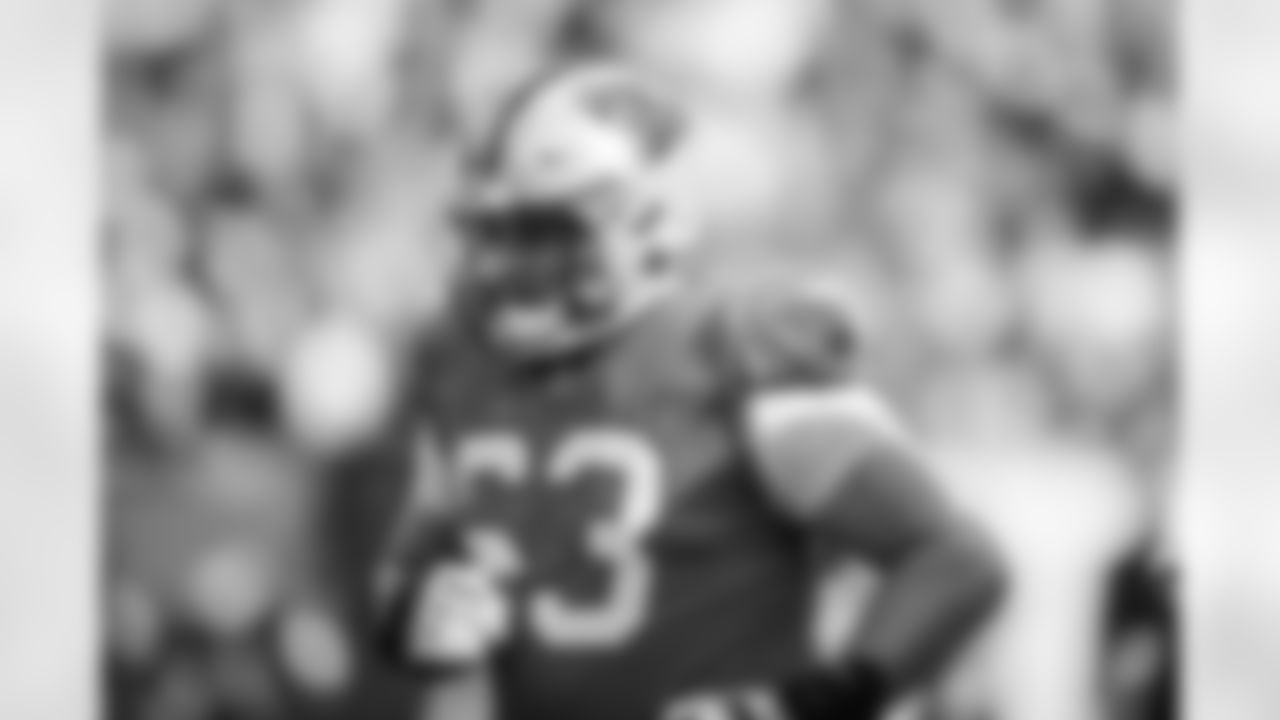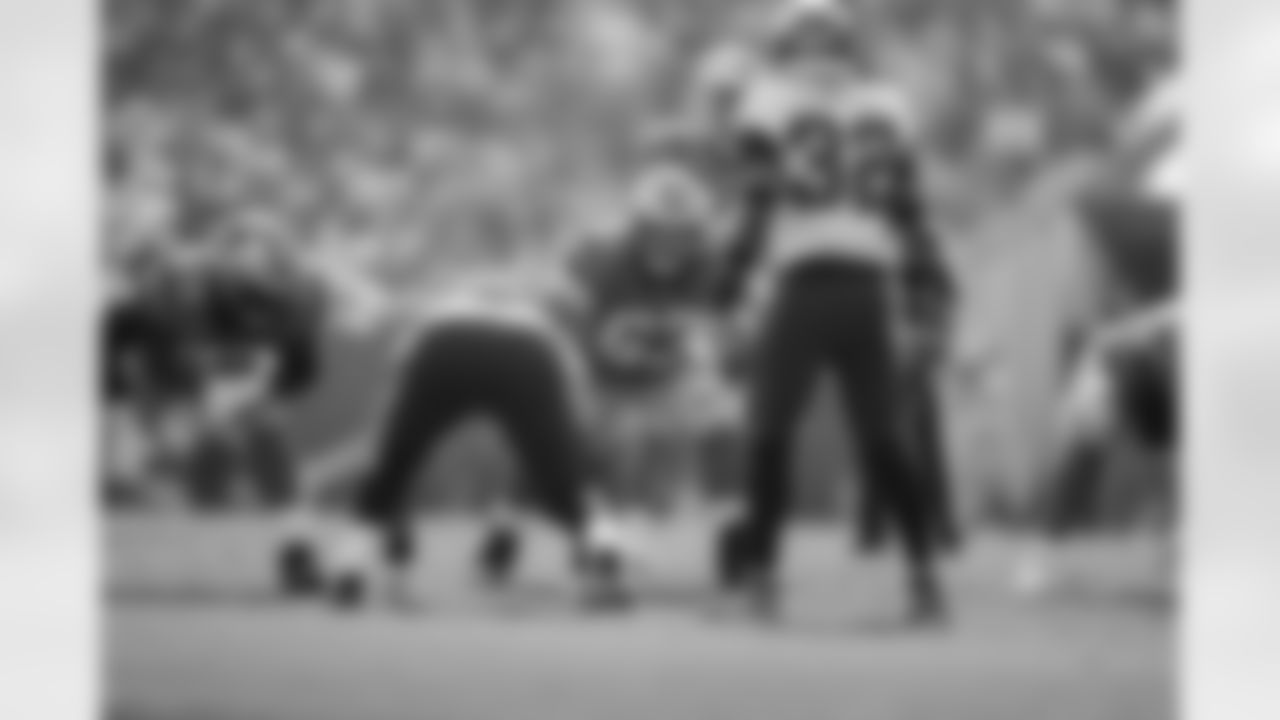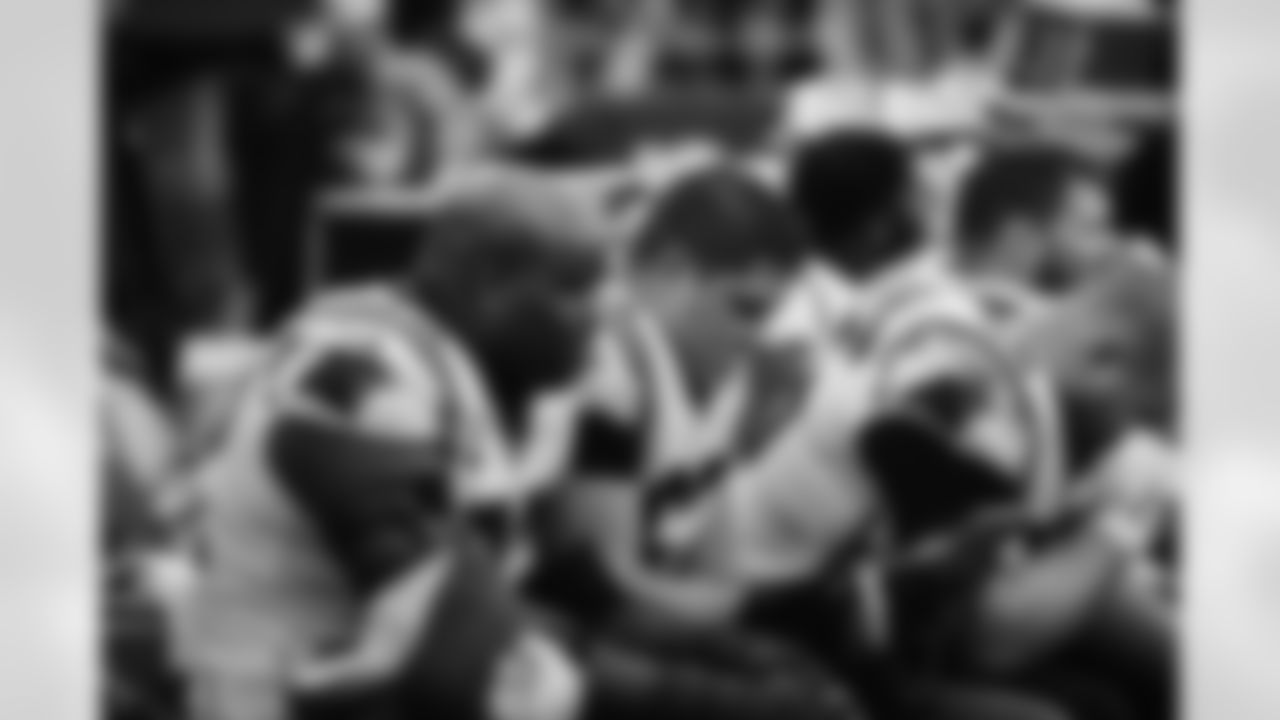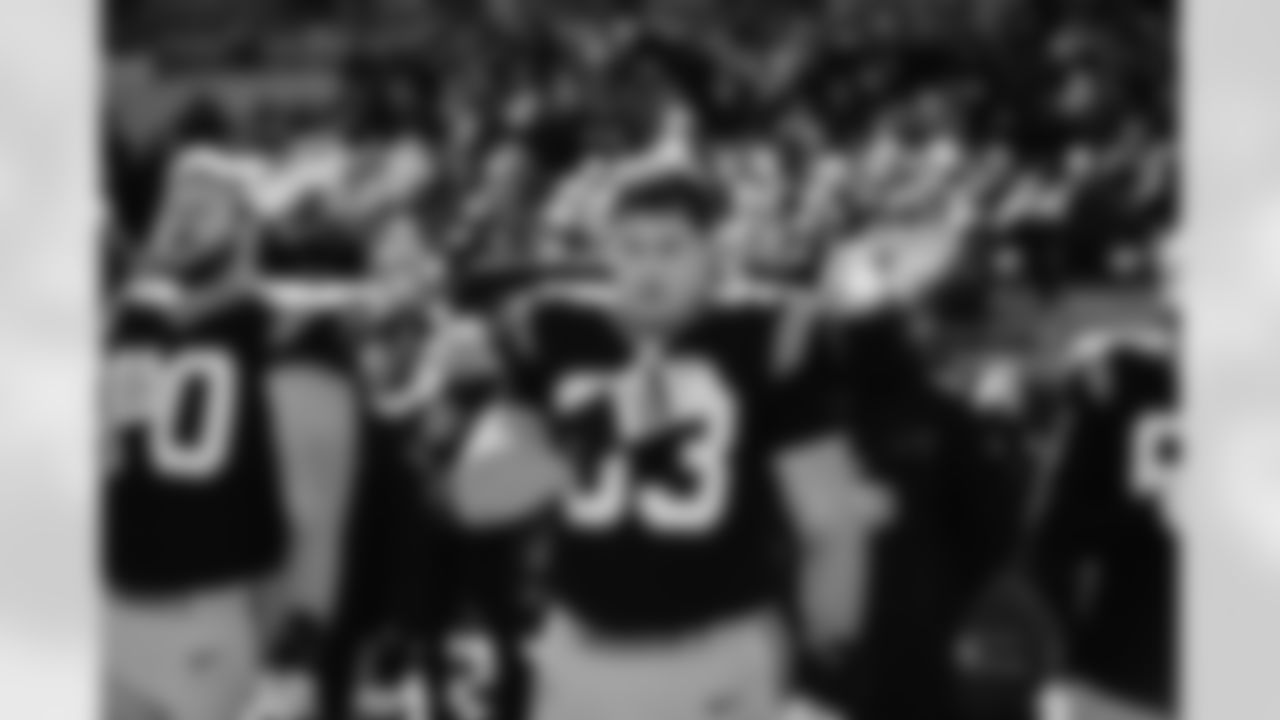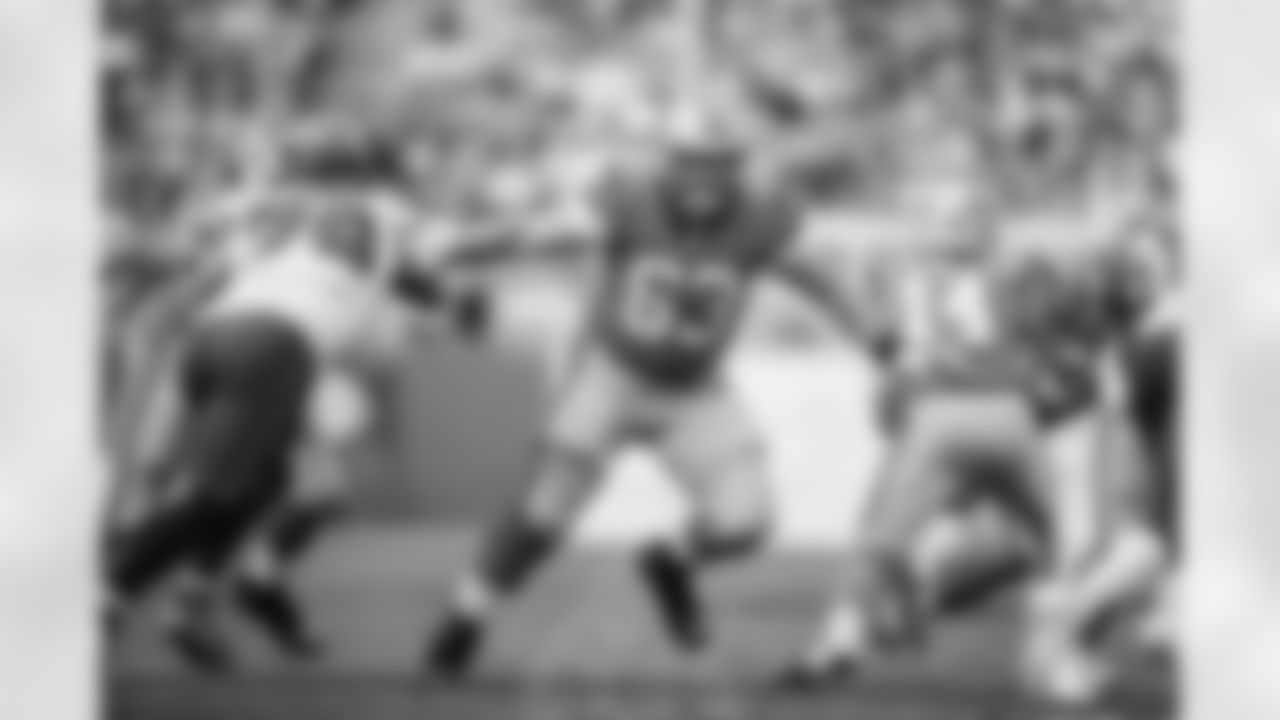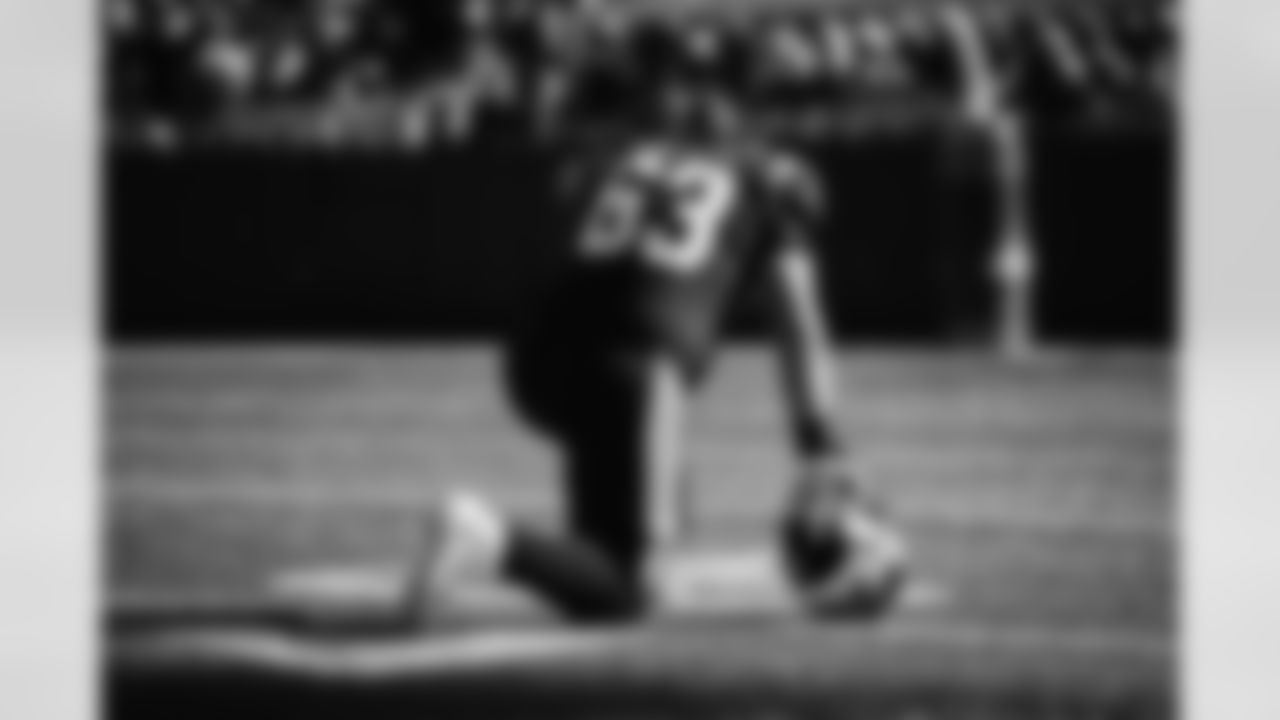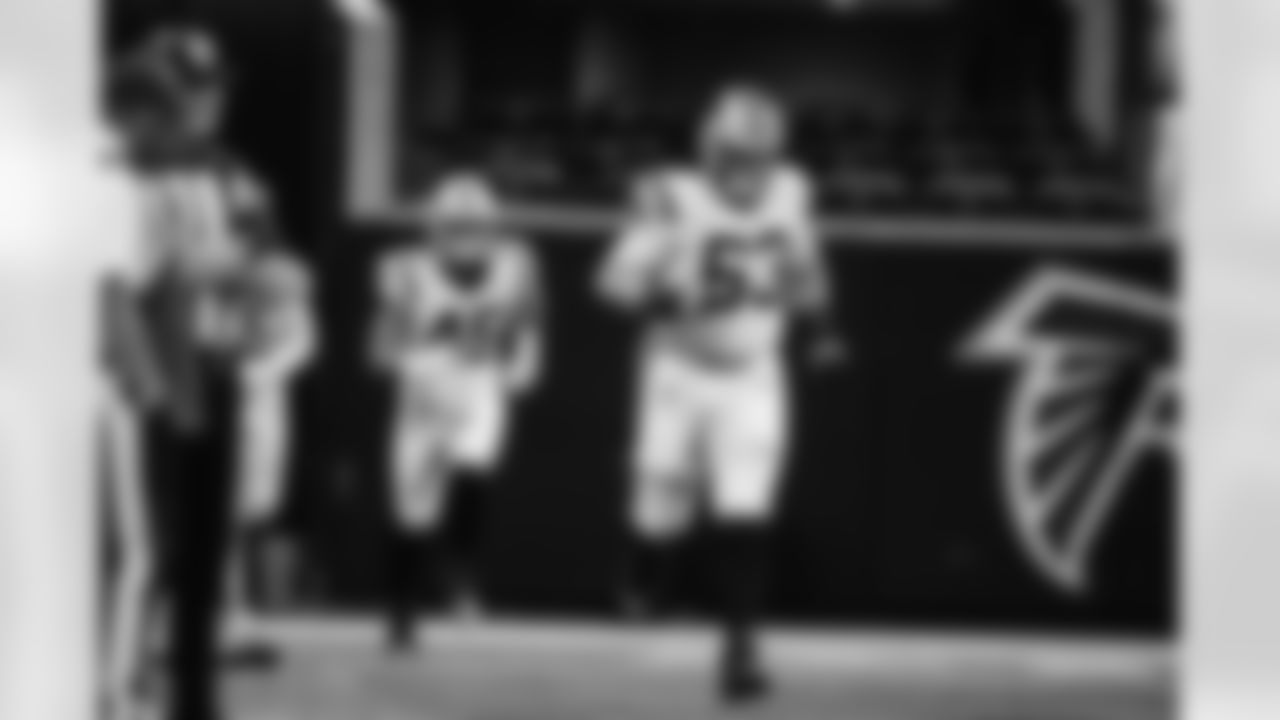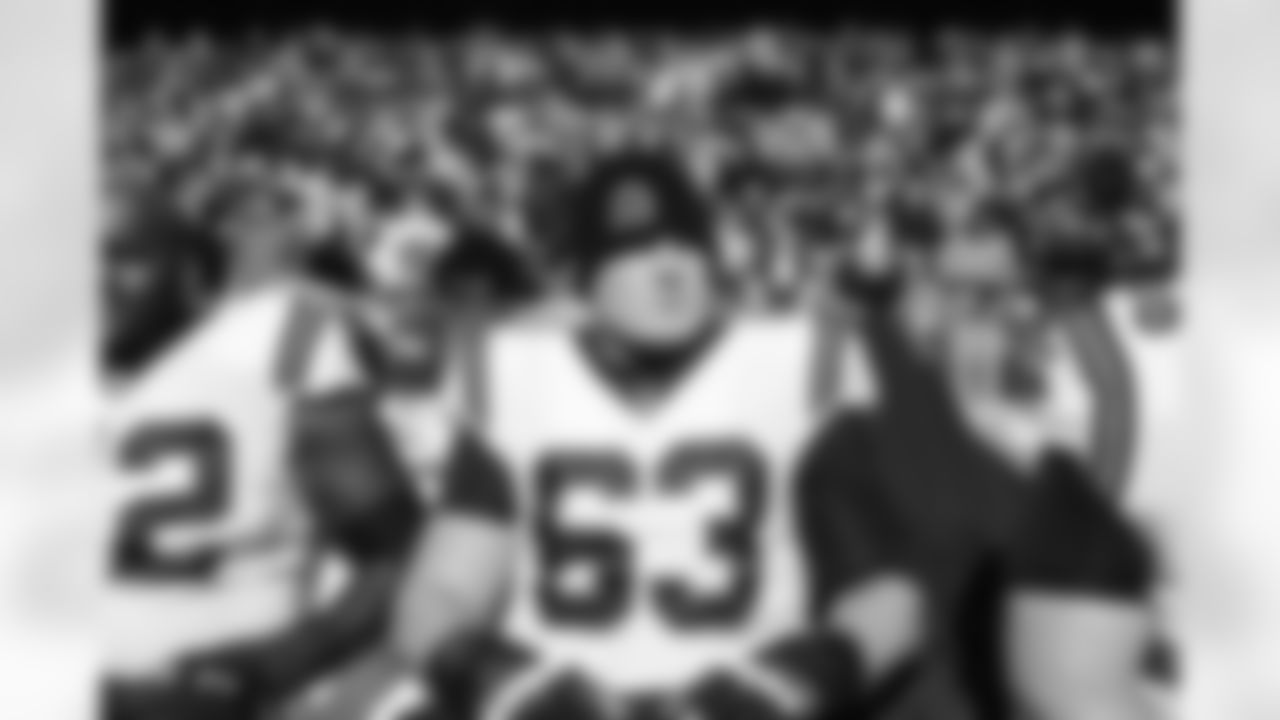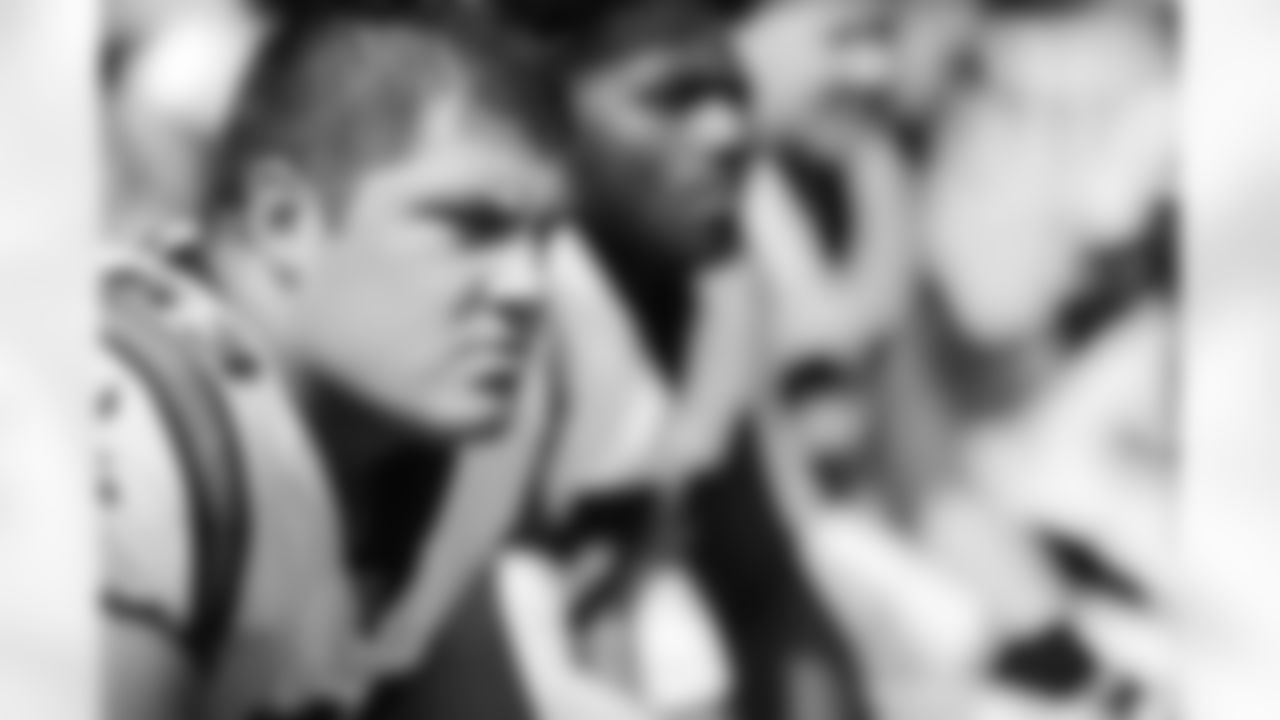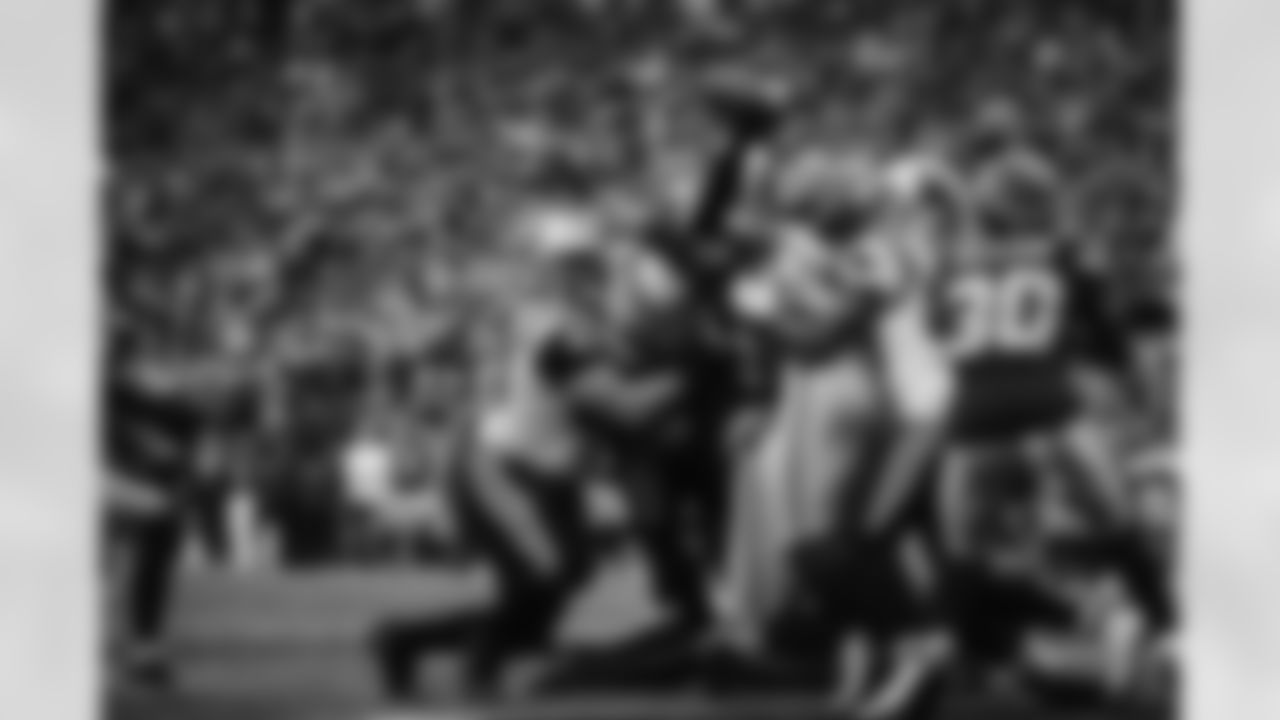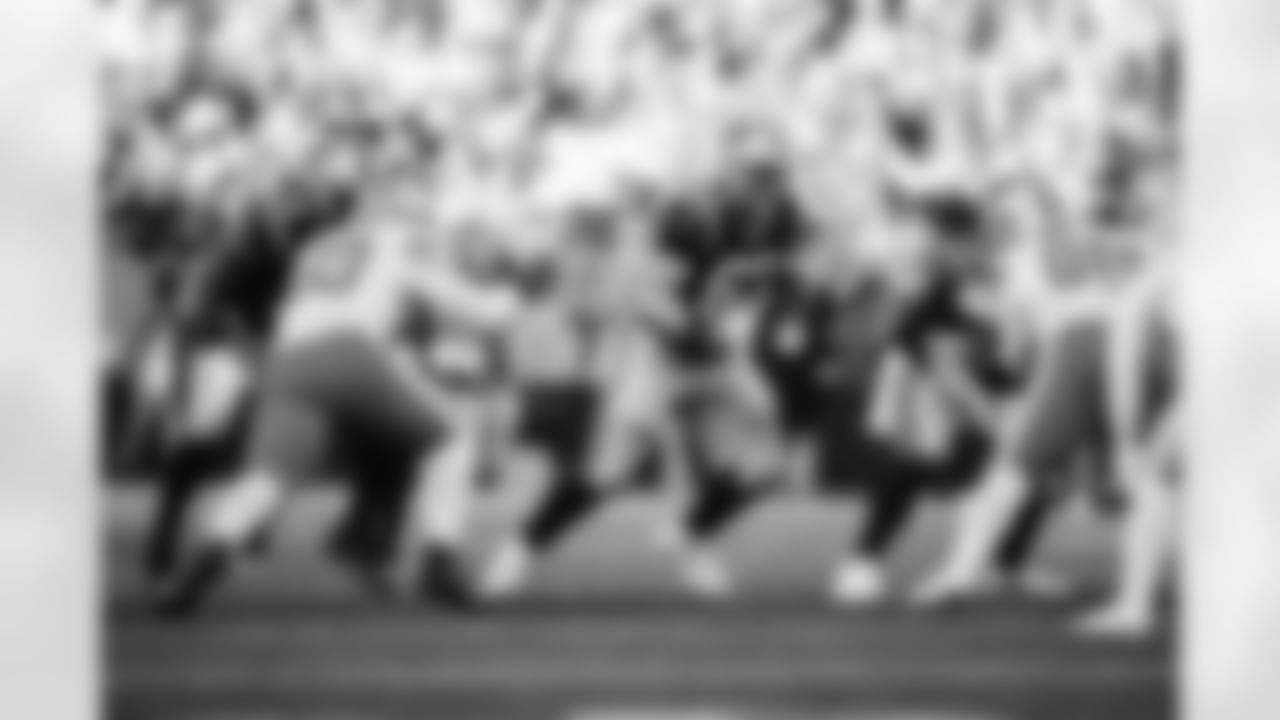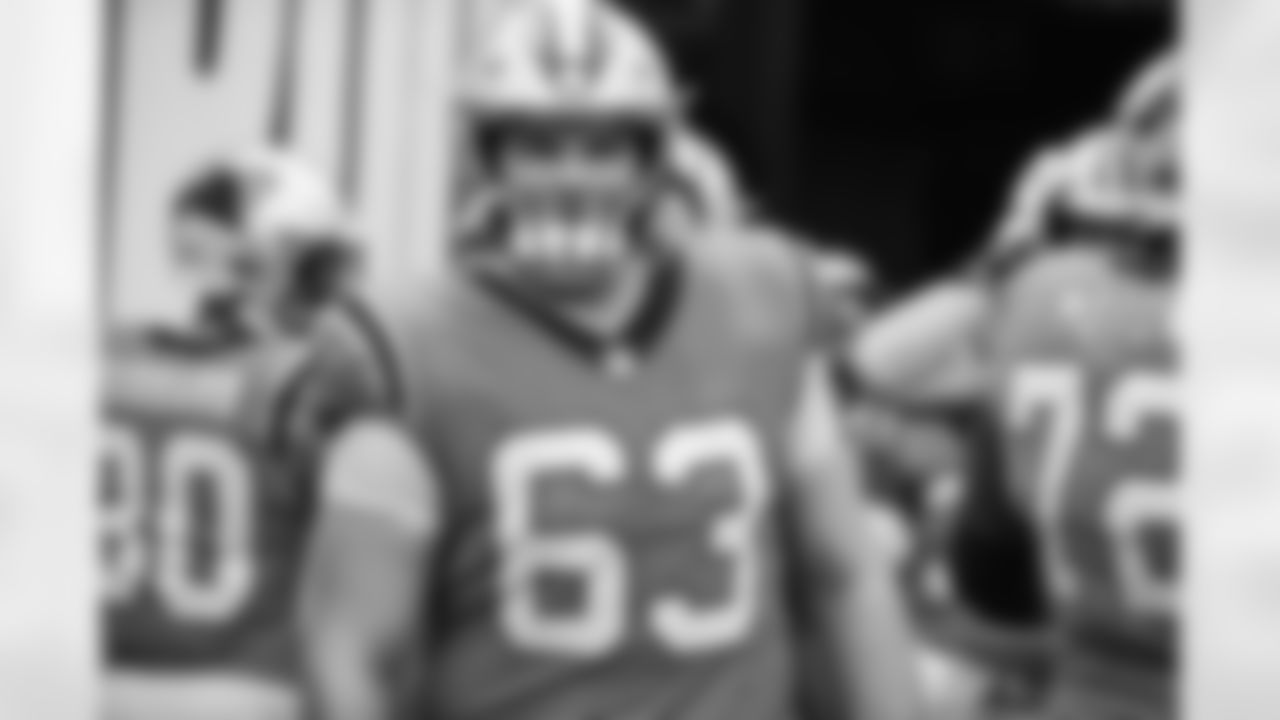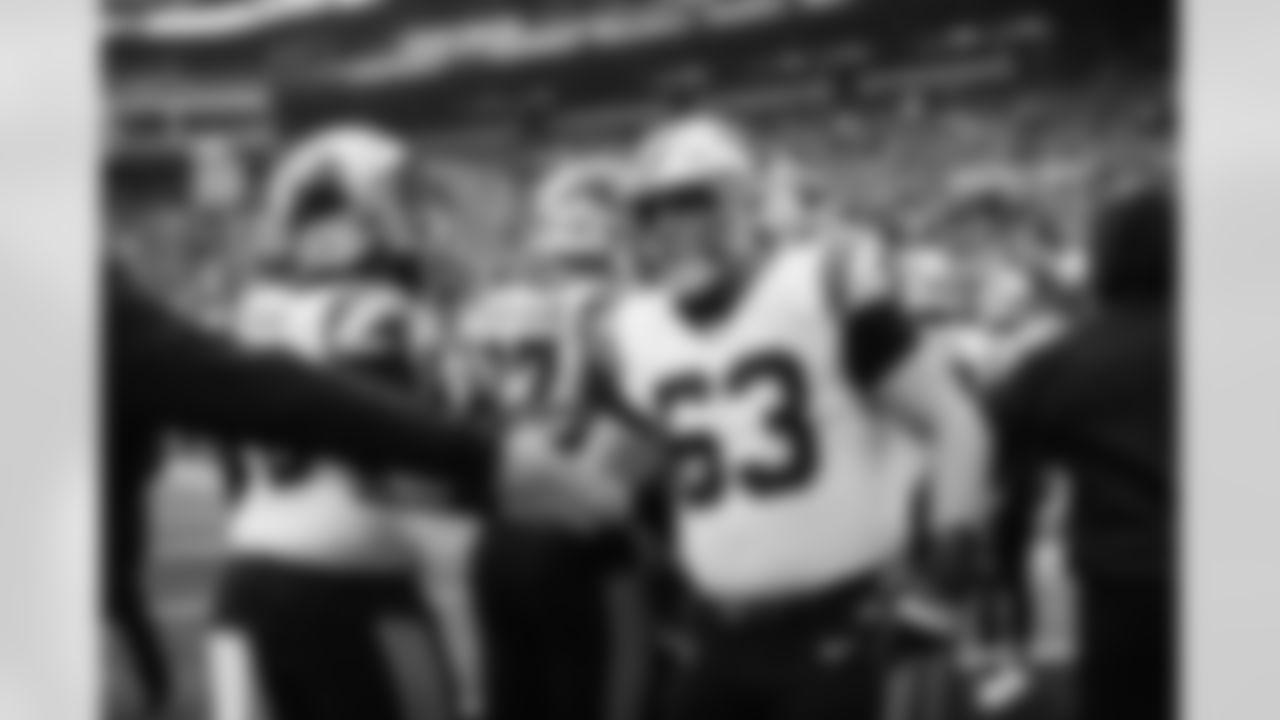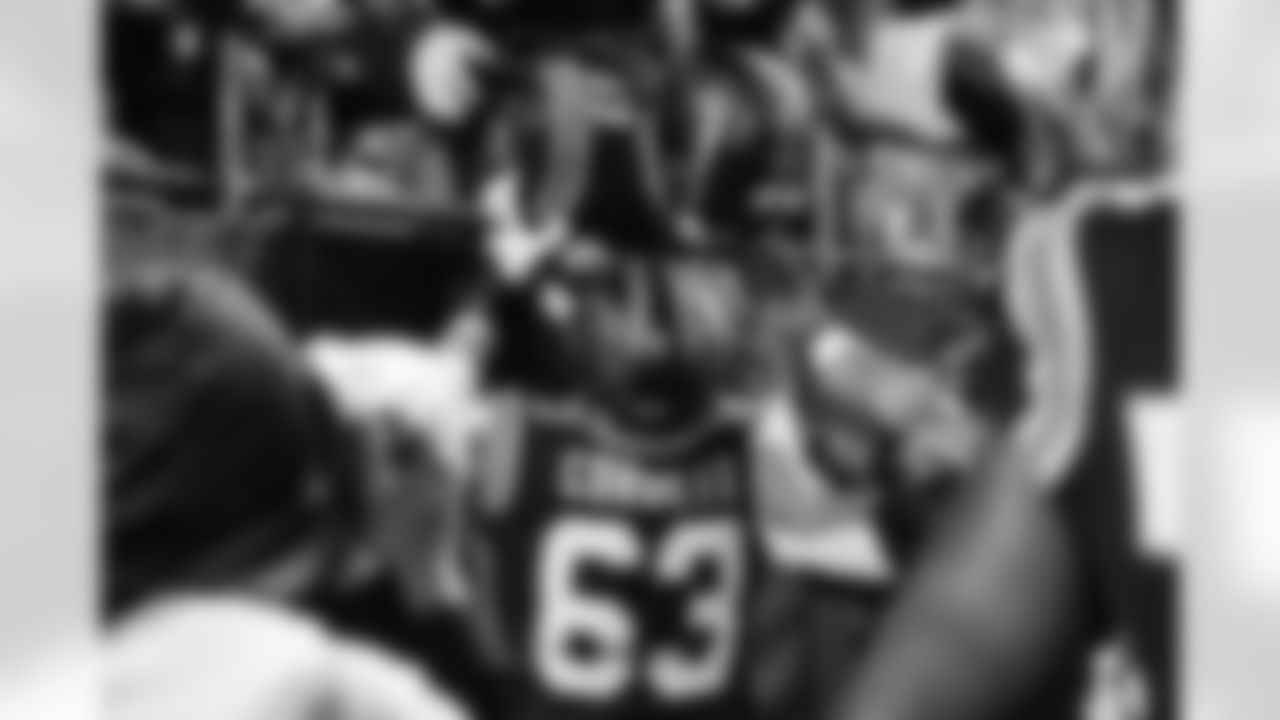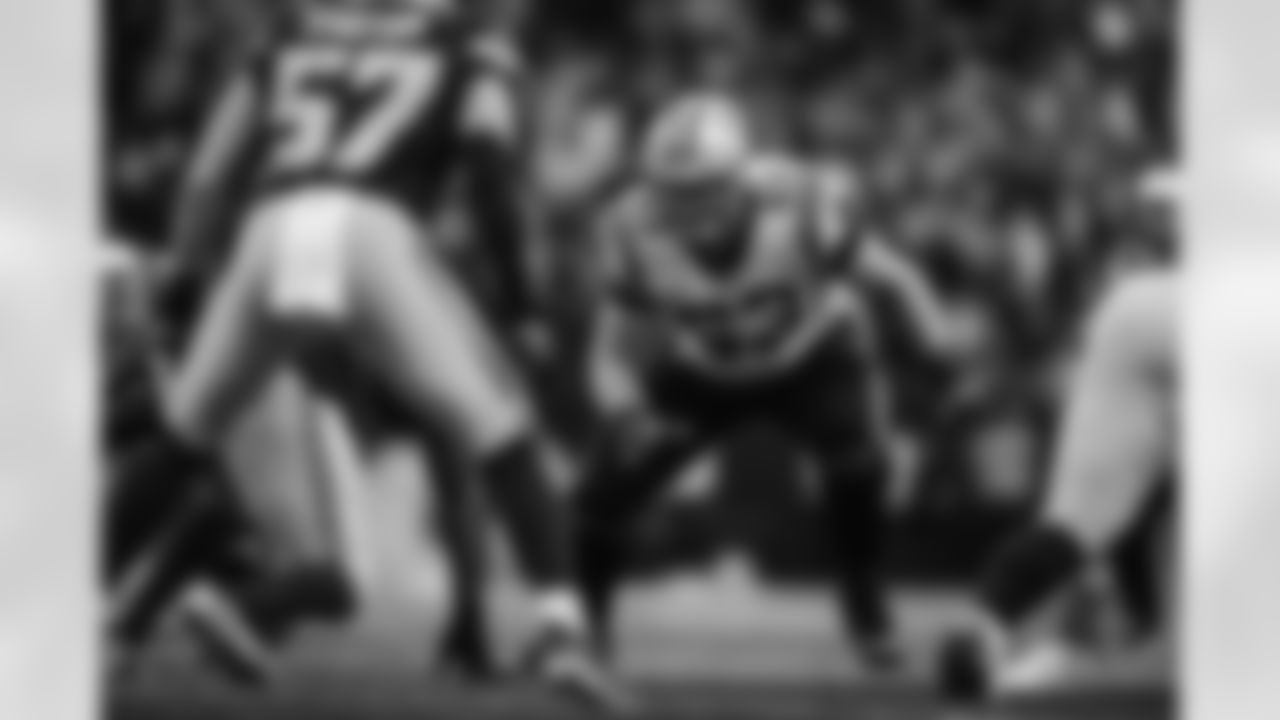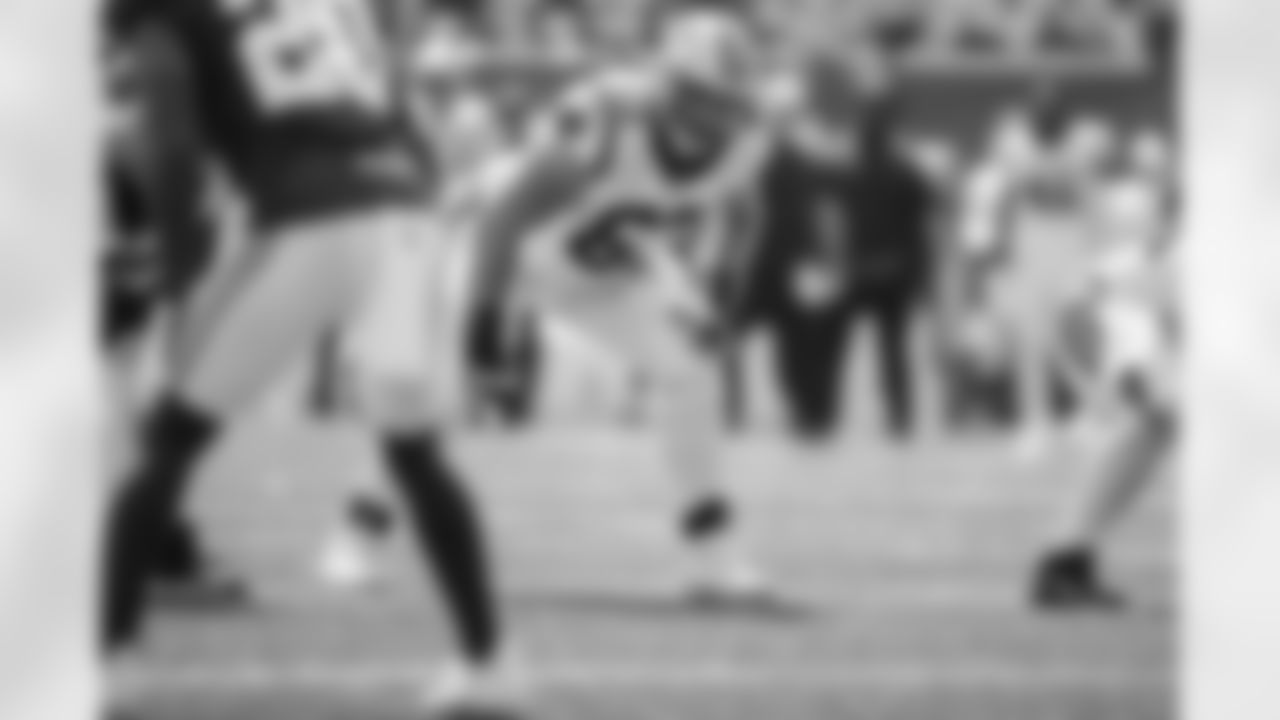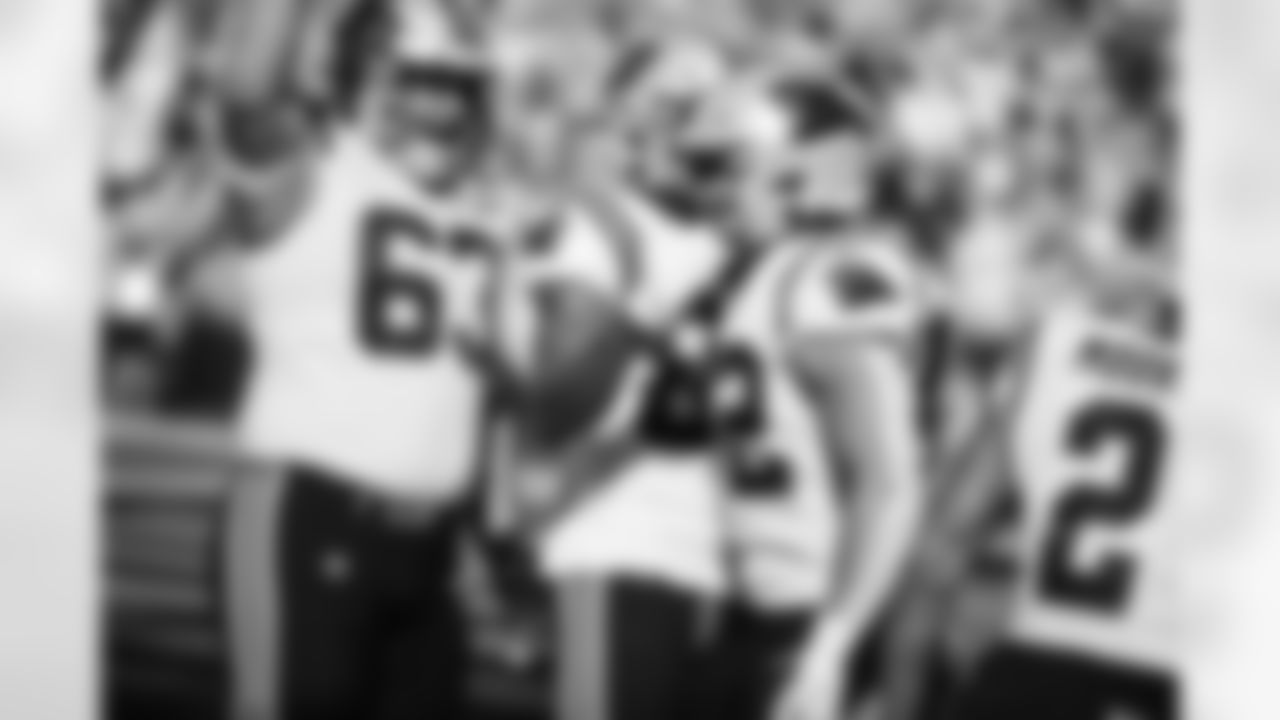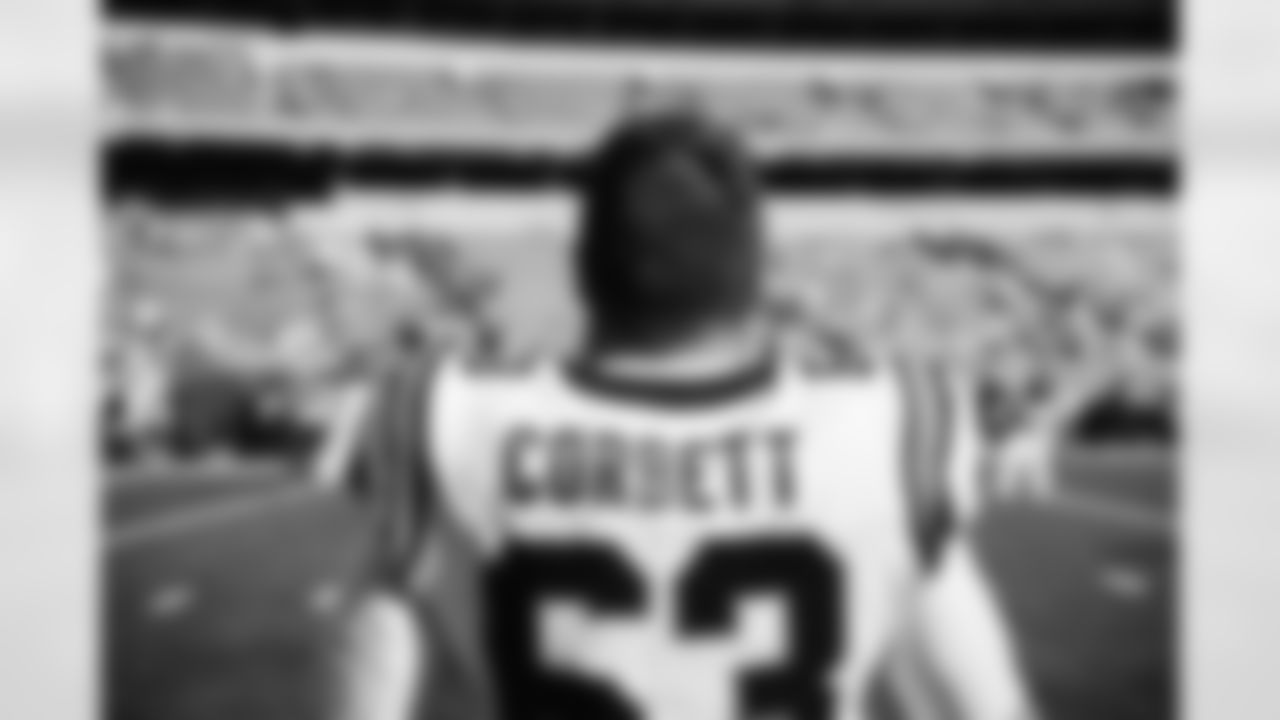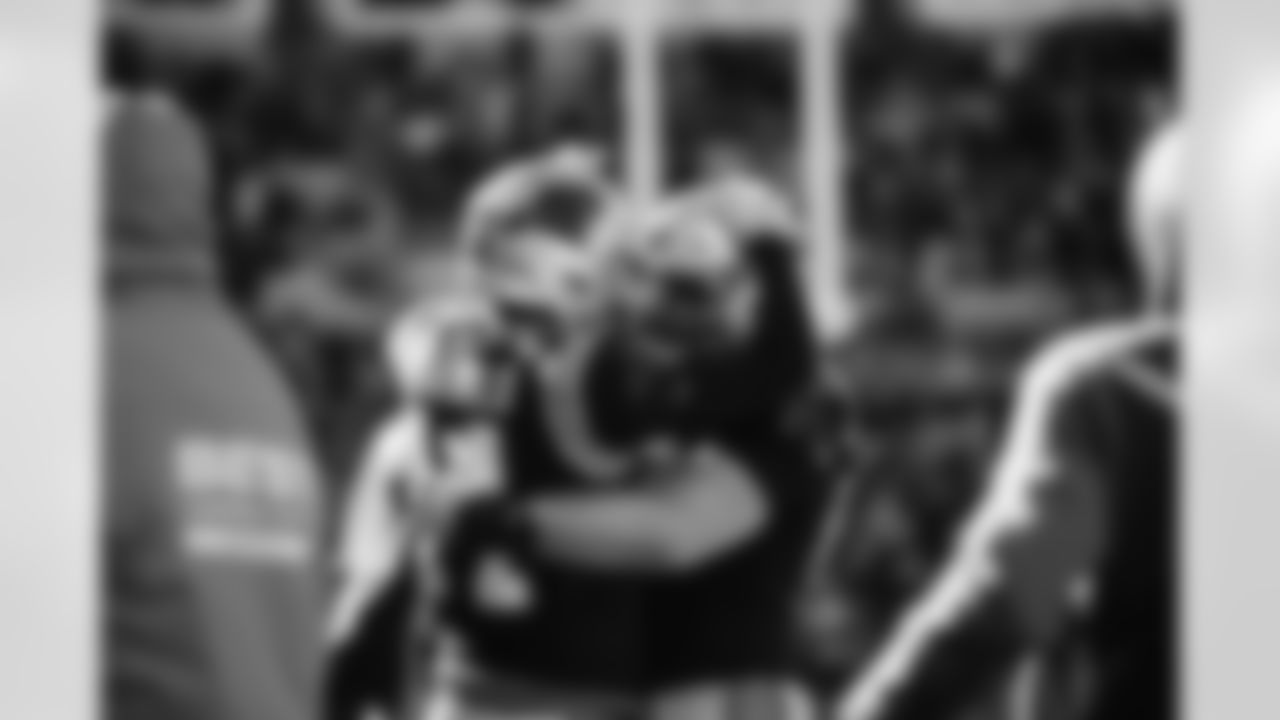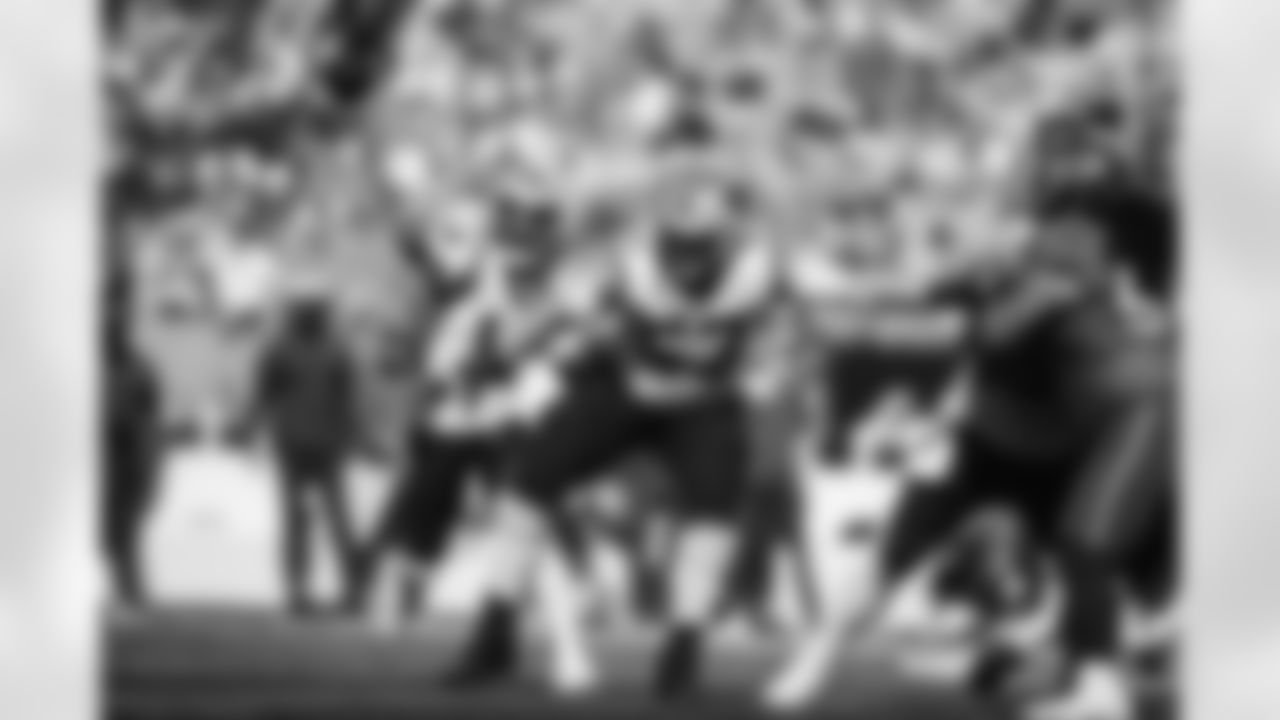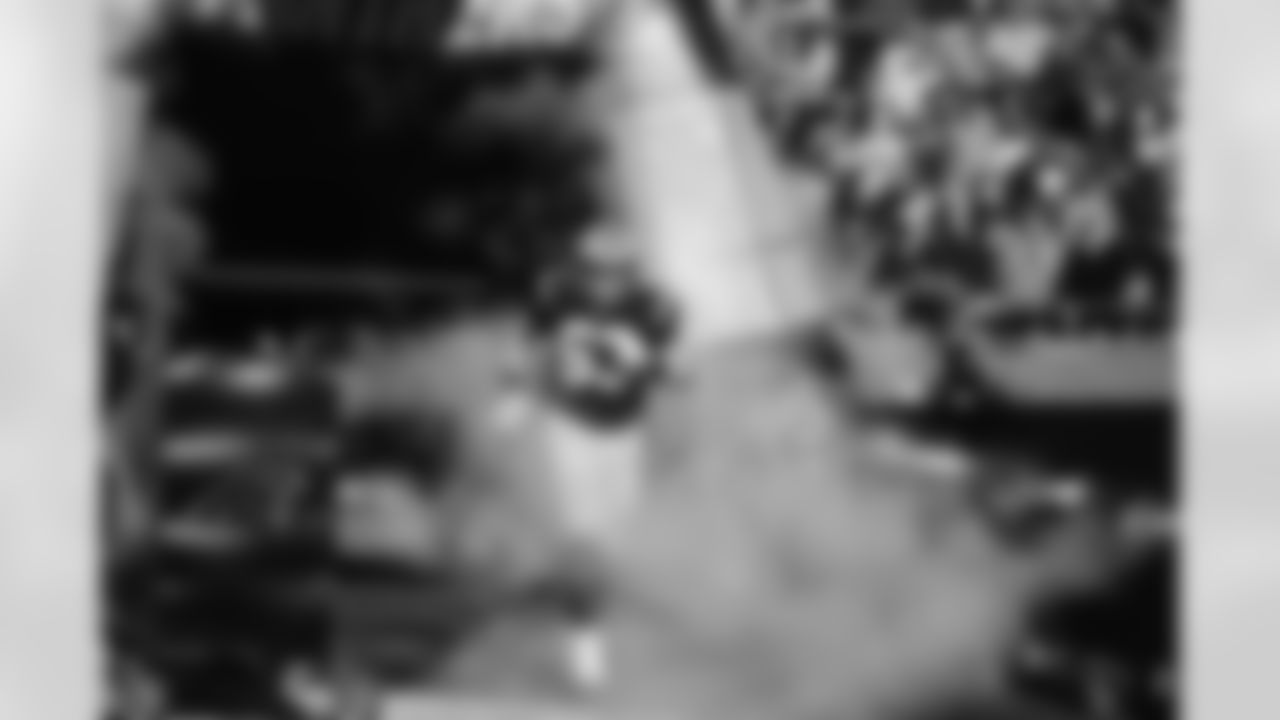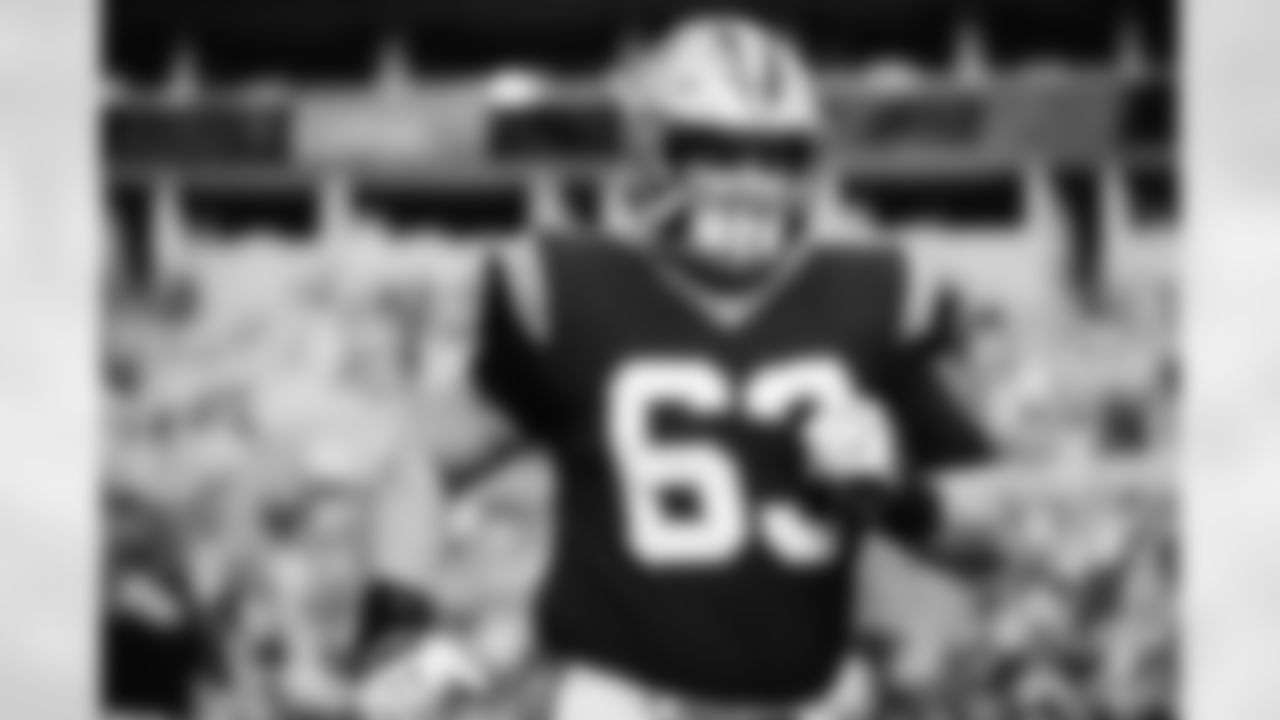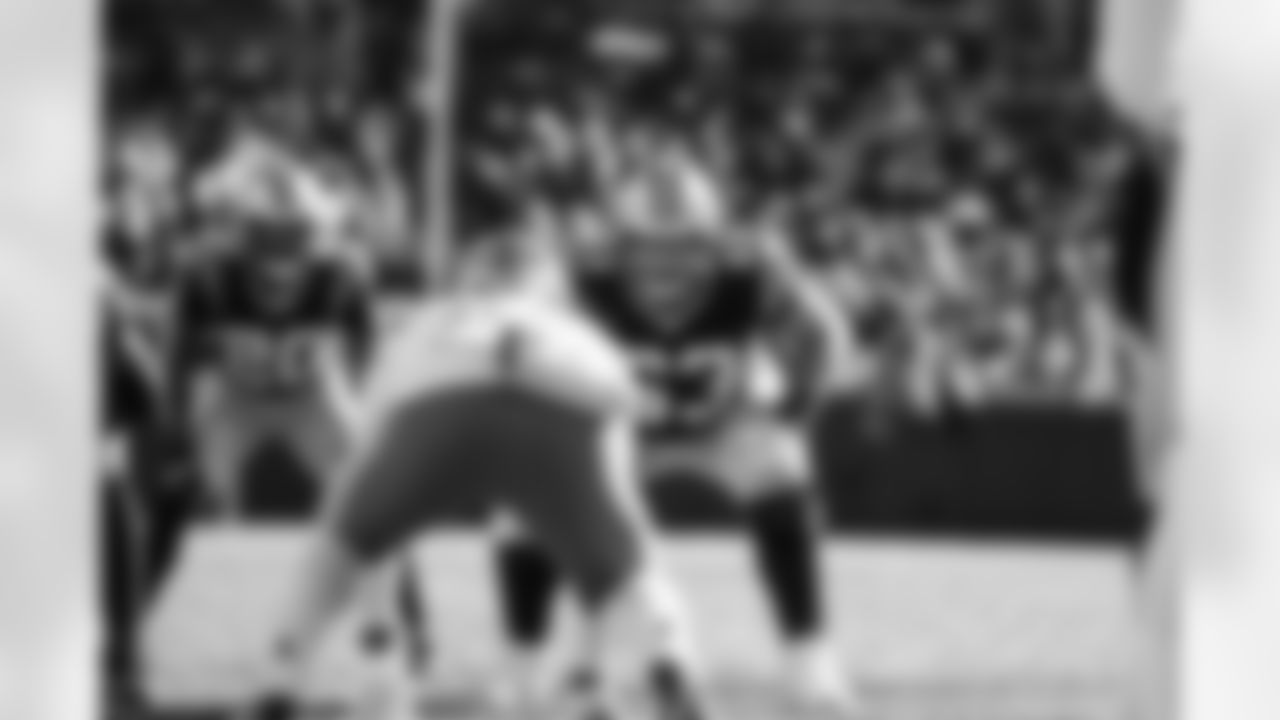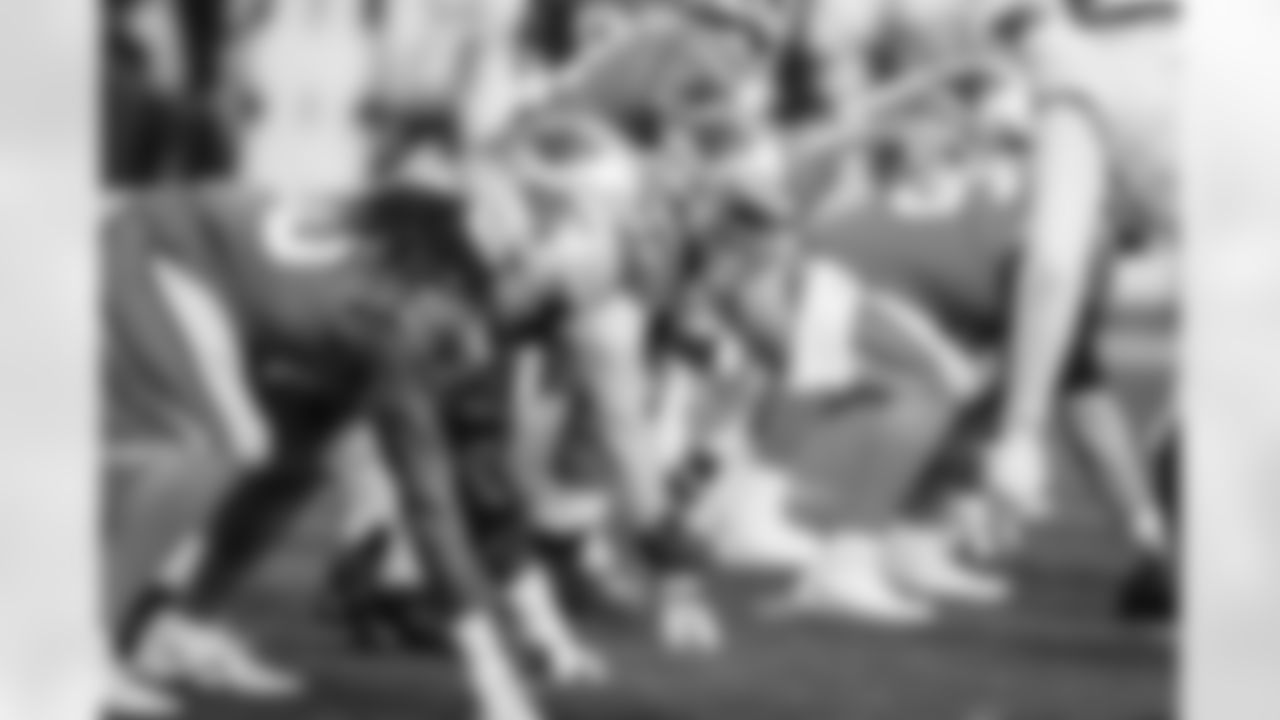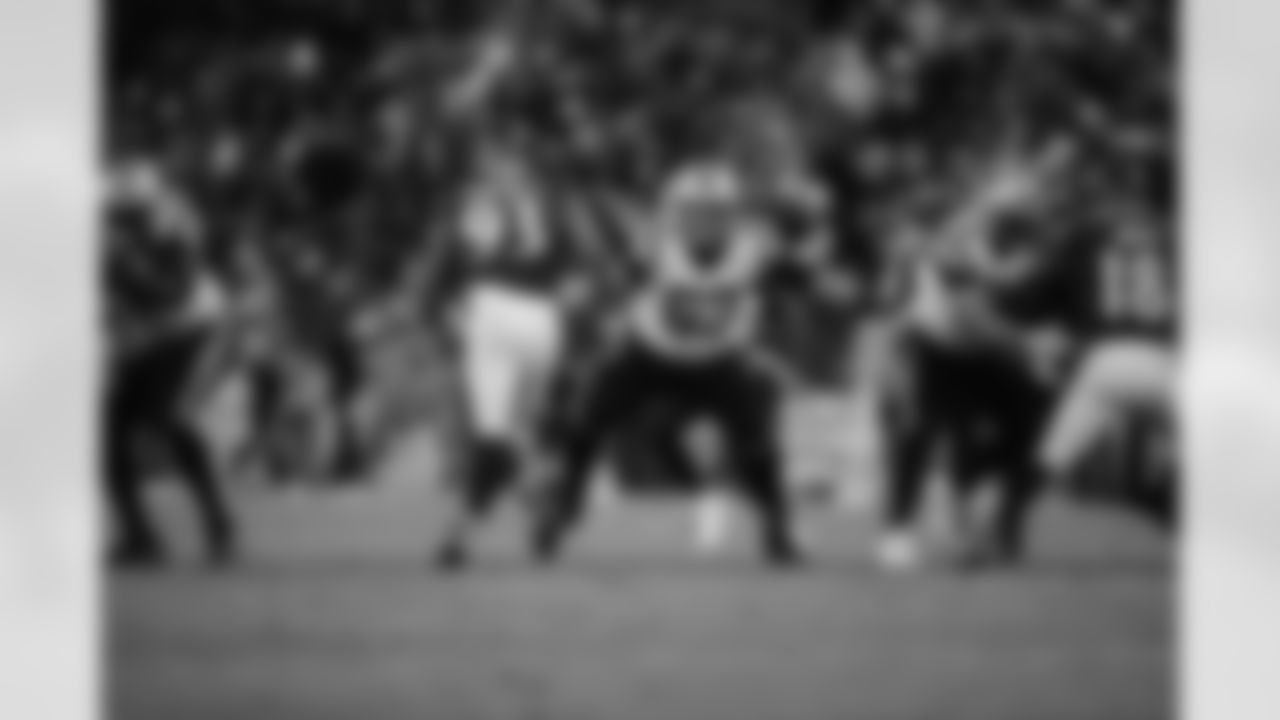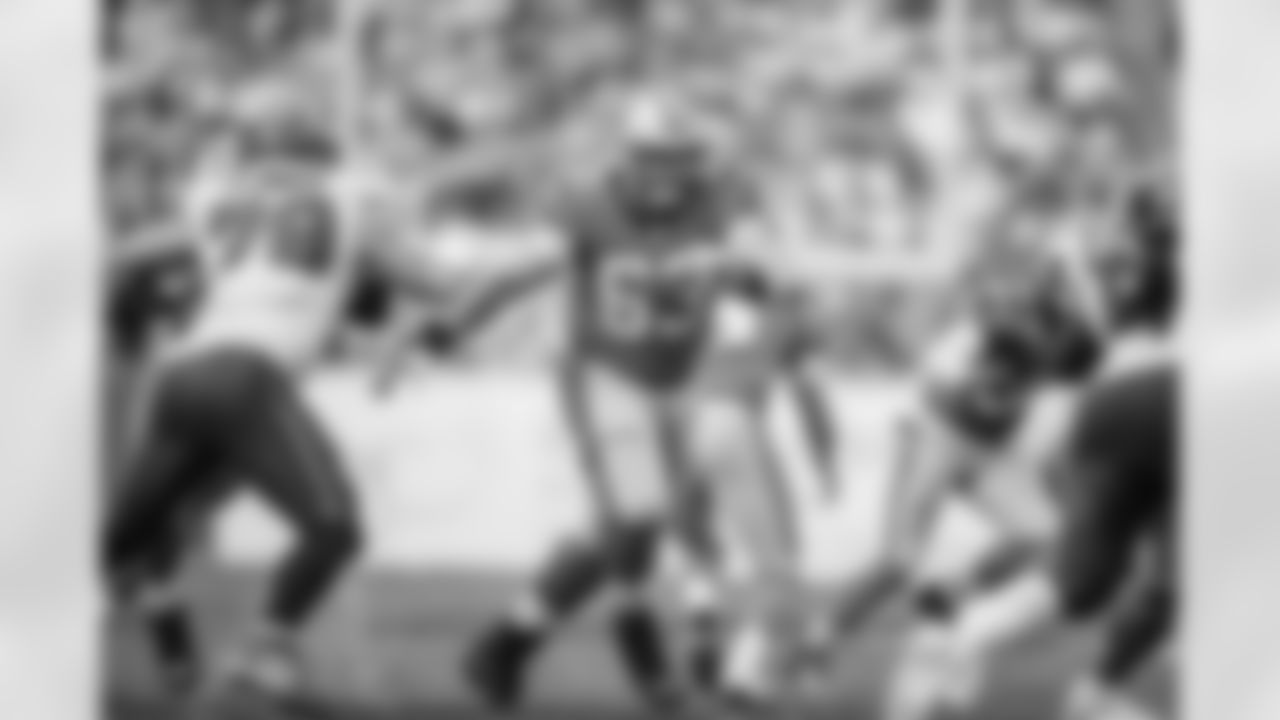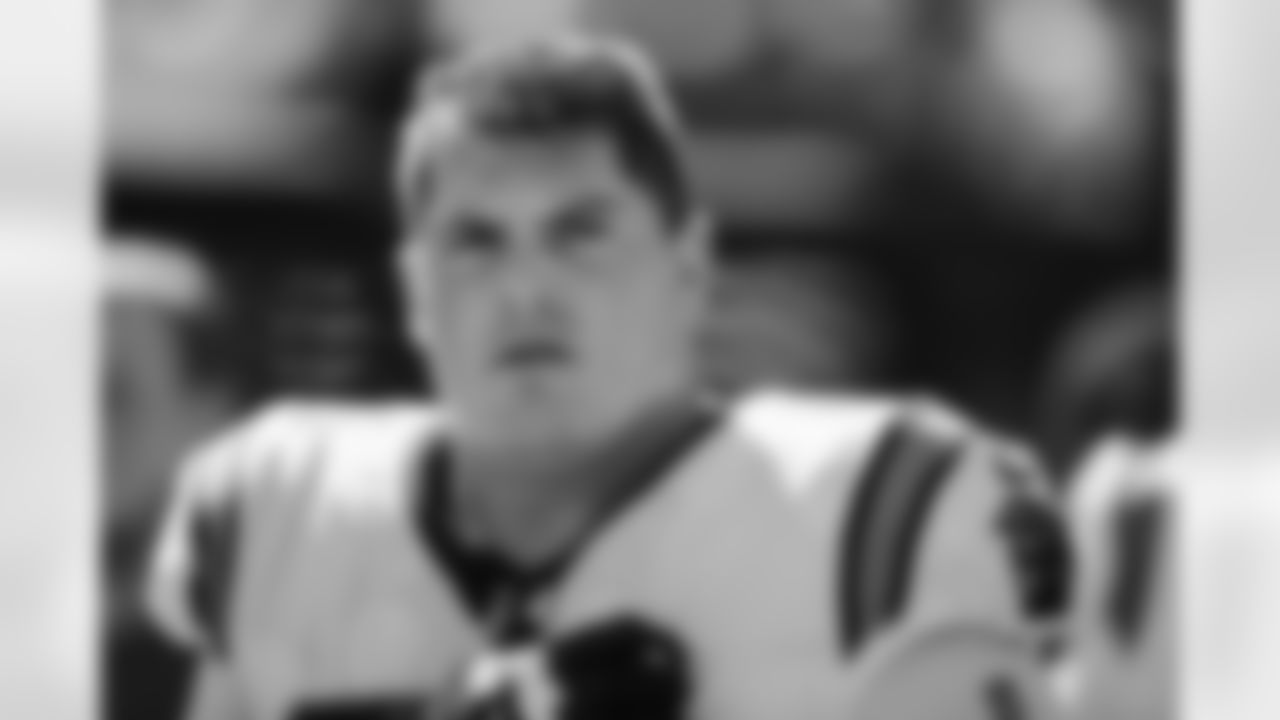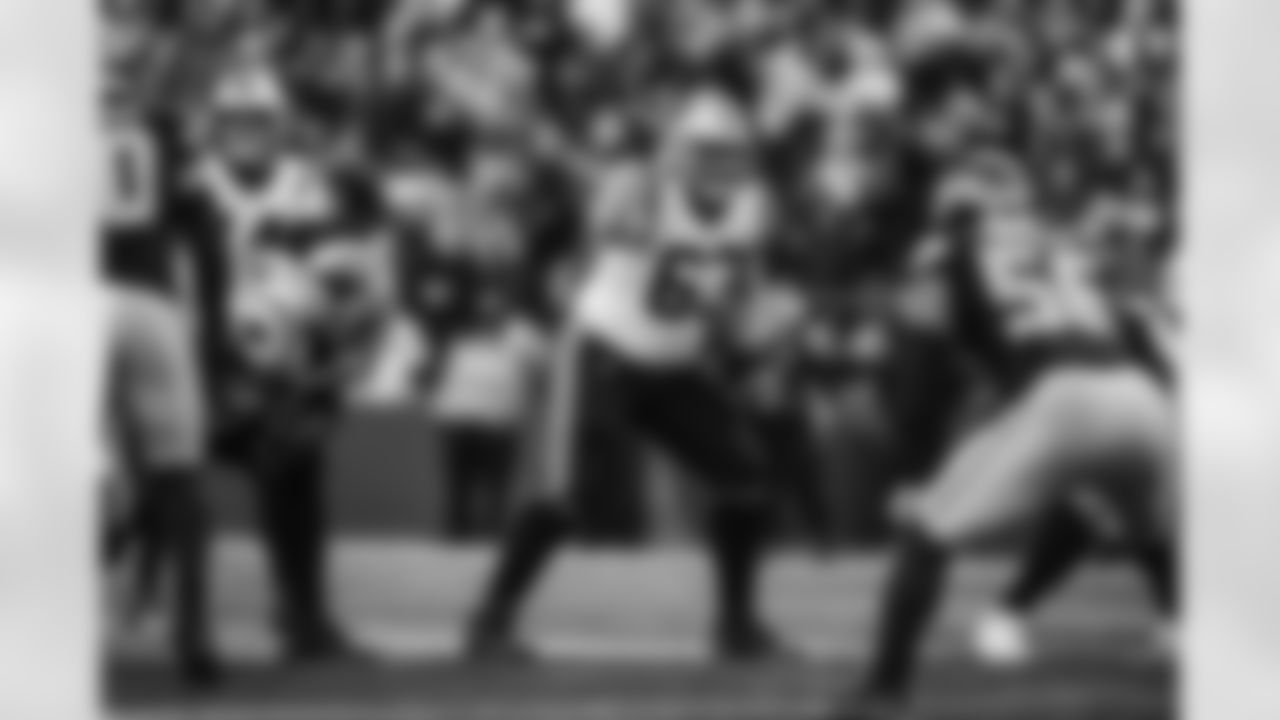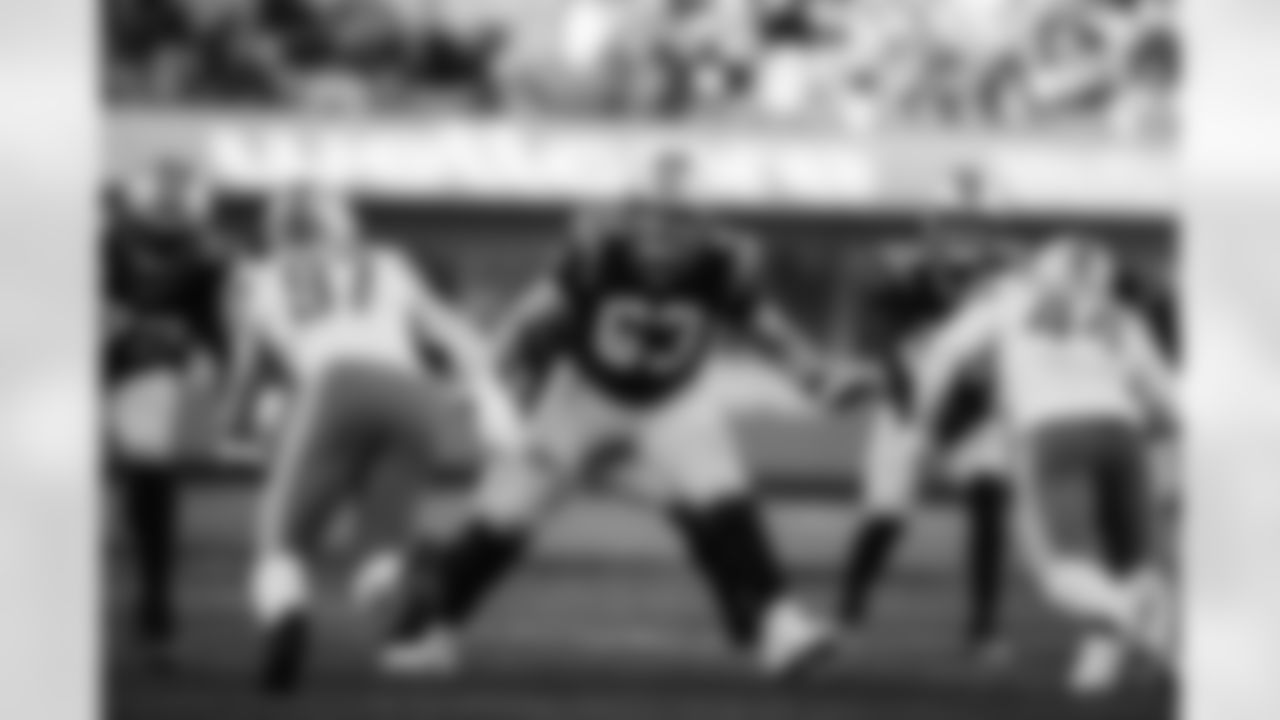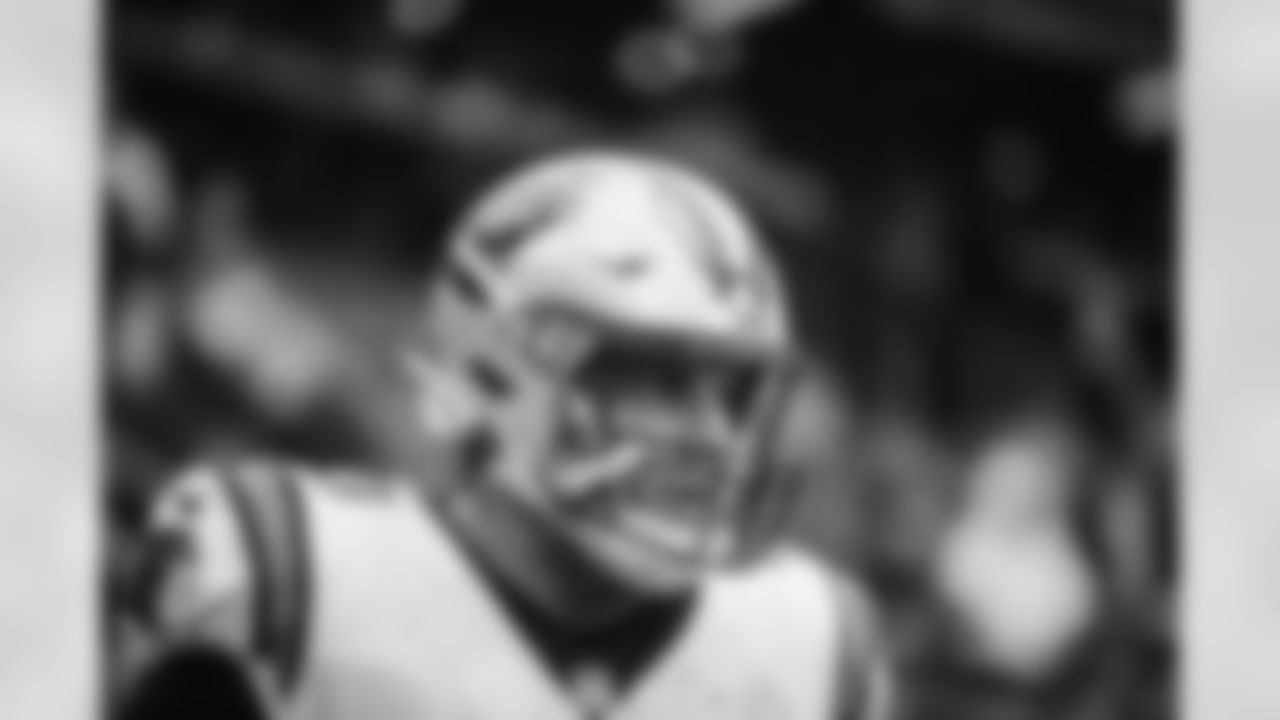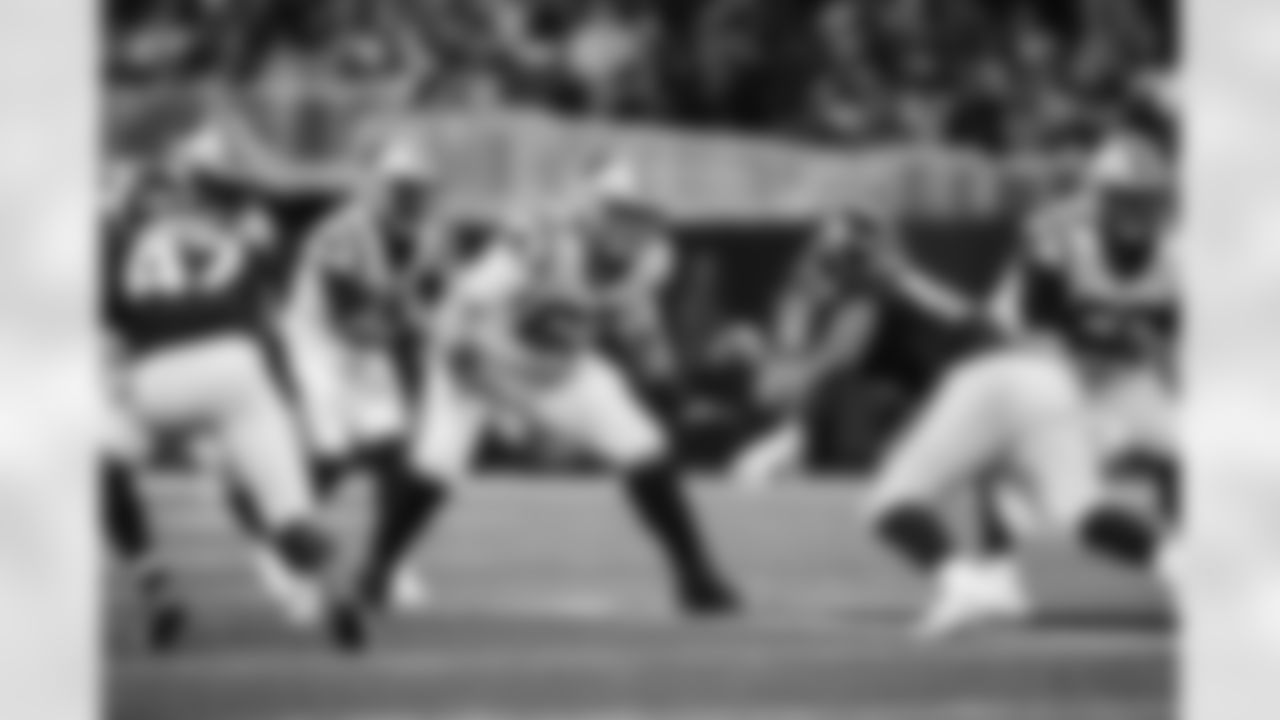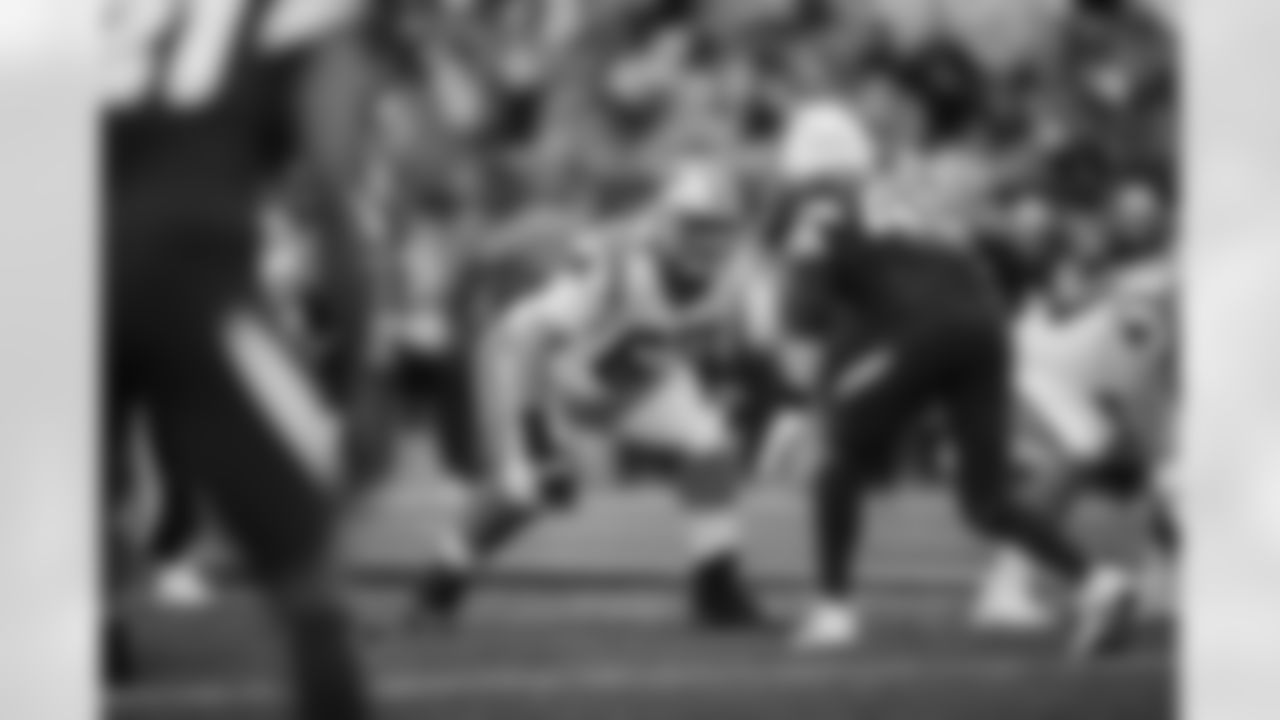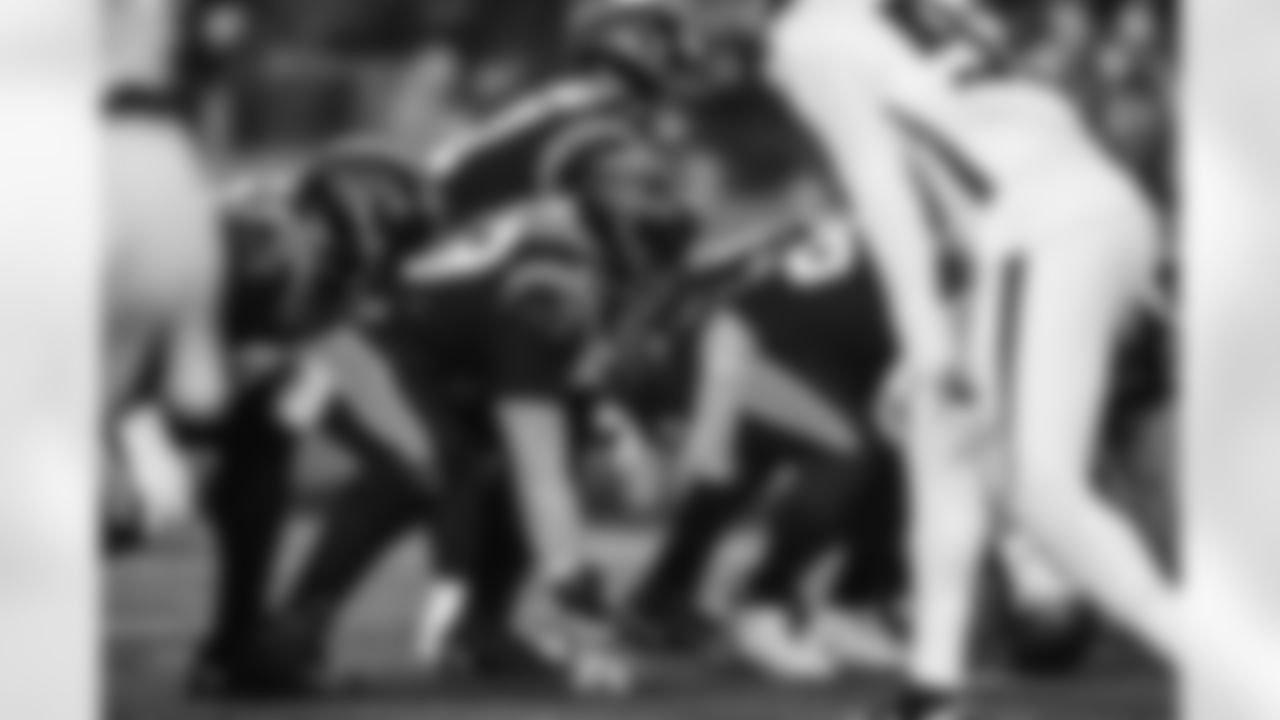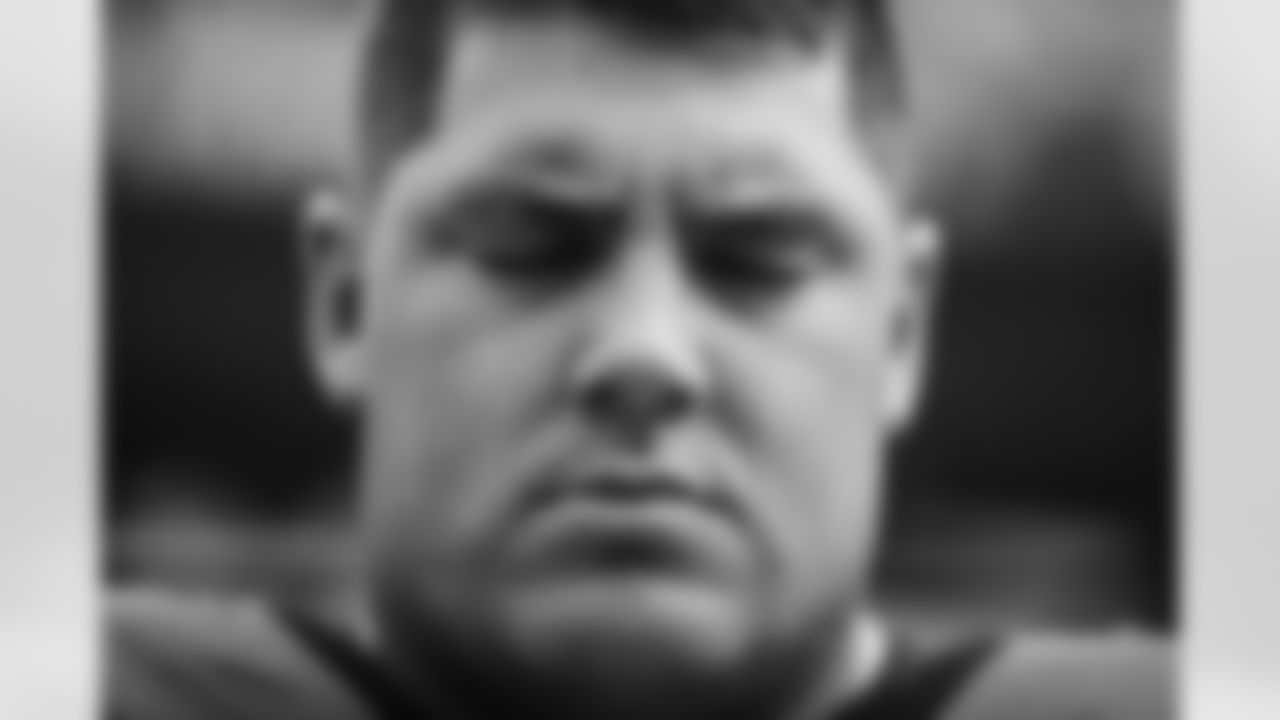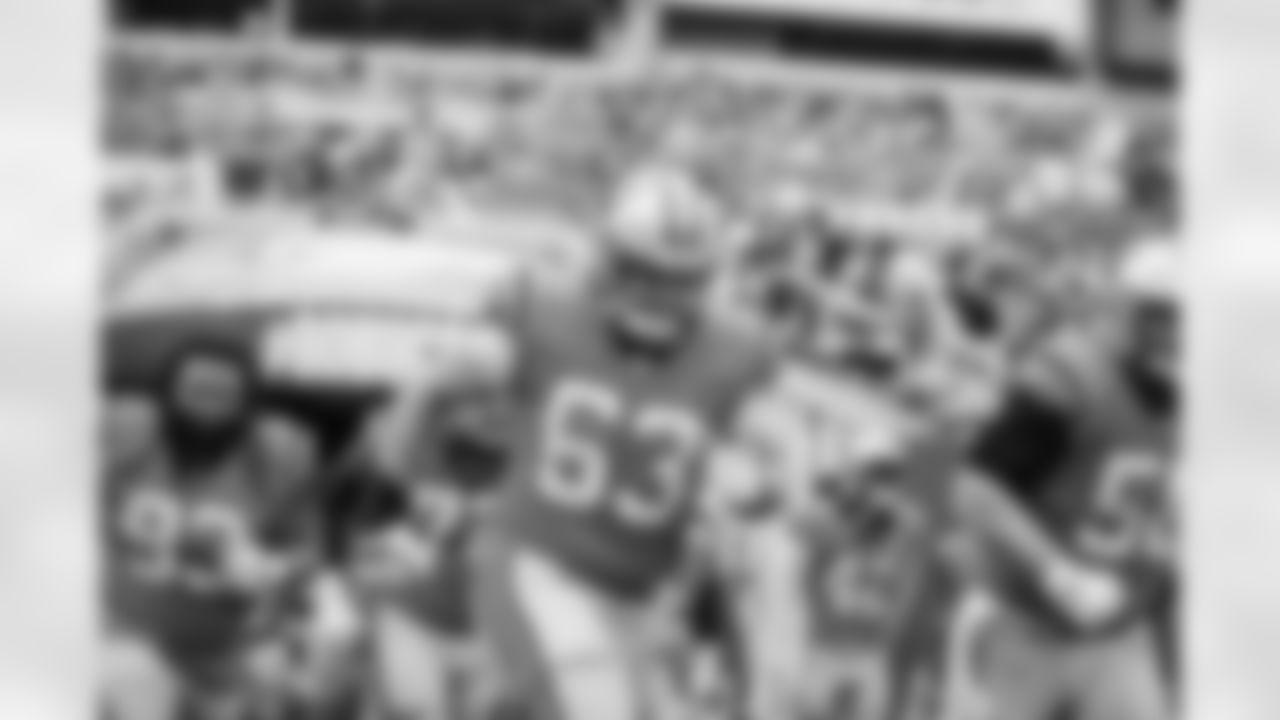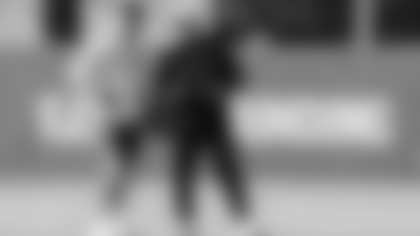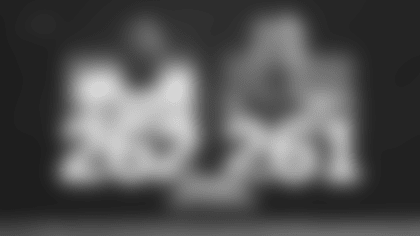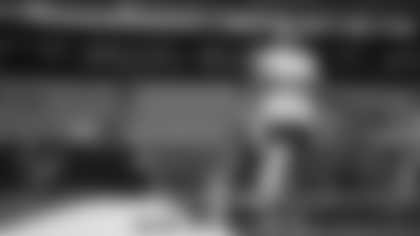Panthers right guard Austin Corbett suffered a torn ACL on Jan. 8 in the regular season finale against the Saints. He has agreed to take us inside the rehab process, explaining his perspective on what coming back from the injury entails from a physical and an emotional standpoint and what the months of work to return actually look like as they're happening. This is his story, as it unfolds.
CHARLOTTE — From the moment he hit the ground in New Orleans, with 27 seconds left in the second quarter of the final game of the year, Panthers right guard Austin Corbett did not expect good news.
"As soon as I felt that valgus movement, I had a pretty good idea what happened," Corbett said two days after an MRI confirmed that he had, in fact, torn the anterior cruciate ligament in his left knee.
While a reporter waited for him to translate "valgus movement" into English, head athletic trainer Kevin King walked by and overheard the conversation. His eyes went wide at hearing actual medical terminology, and without breaking stride, gave Corbett an approving nod and fist-bump of recognition.
"Respect," King said as he moved quickly across the room, because King's always moving quickly across whatever room he's in. He's a busy guy.
Corbett grinned and admitted that he knew so much about his condition because when he began college, he thought it was more likely he'd end up with King's job rather than his own. Corbett studied and planned to major in kinesiology at Nevada and was thinking about medical school as a possibility. Eventually, it became clear he was qualified for a job on the field rather than in the athletic training room, but he carried that background into his NFL career. Corbett speaks casually of anatomy and gait patterns, which gives him some helpful insight into his current condition.
"It makes him a good patient," King said with a laugh, though they both know this one will take a good bit of patience as well.

Corbett knew that day in New Orleans that this wasn't good. Beyond the valgus movement (the shifting inward of the knee joint, or in general terms, think being knock-kneed as opposed to bow-legged), there was also intense pain.
"I felt the pop and kind of felt that all-encompassing just kind of shock," Corbett said. "It really tightened up on me. It's definitely something you know. You get rolled up all the time in piles, and things happen. And you lay there for a minute, give yourself this little assessment, start moving around, and then get up.
"But for the first time in a long time, I tried to get up, and I couldn't."
Eventually, the staff got him to his feet, and helped him to the sidelines and into the blue medical tent for some tests. Initially announced as questionable to return, he didn't. That was a shock in and of itself because the Panthers' offensive line was as remarkable for its good fortune as its success last year. The starting five played every snap of every game until the finale (left guard Brady Christensen also left with a broken ankle that day), and they only had one lineup change all year, using two starting lineups in 17 games after going through 13 combinations last year.
After the game, there were crutches in Corbett's locker, but he wasn't leaning on them when he talked to reporters and spoke about the team finishing on a high note.
And that's what's funny about ACLs. You can walk around, at least in a straight line, without one. It's hard to be an elite athlete without them (though some have, including former Panthers cornerback Jimmy Hitchcock). But since they're the ligament that provides rotational stability to the knee, you can still get to the bus whether it's torn or whole.

So two days later, as he sat in his locker (the crutches nearby and getting more necessary by the day), Corbett acknowledged the internal confusion. He wasn't in the kind of acute pain Christensen was. His younger teammate was in a cast and riding a scooter to keep the weight off his broken ankle, while Corbett was able to take some steps. But he also knew he was in for a longer process of recovery.
"It's the weirdest thing," Corbett said. "I'm still, like, fairly mobile right now. I can still walk. I've obviously got a little limp to me, but I can still stand. I can still do things. But it was just that initial shock. That trauma of breaking a bone, it's mainly the shock and the adrenaline rush that you get then. But right now, it's not a ton of pain for me. Right now, it's more just the swelling. That's the annoying part, right? The swelling is already coming down significantly. Like today, it's going away. It's more of an annoyance right now.
"And I know it's going to get significantly worse post-surgery. So that's looming. Getting worse before it gets better is what we're dealing with."
It was Jan. 10 when he said that, so he knew then that the surgery to repair the damage was eight days away. He also knew enough that the standard for these kinds of injuries was nine months, and you don't have to have a degree in medicine to know the 2023 regular season starts in nine months.

But before he could think about September, he had to get through Tuesday, and then another week before surgery.
And he knew he had a lot of work to do before that happened.
For hours a day, Corbett made a new home in the athletic training room, working with the entire sports medicine staff on what they called "pre-hab."
Because a player with a torn ACL will be out of action for an extended time, there's a plan to make the surrounding muscles as strong as they can before going into the surgery to account for the inevitable atrophy that comes with not being able to use the leg. So for hours during the week after the injury, Corbett was sweating as he put in the last physical exertion (at least in the lower body) that he'd do. Among the exercises were what amounted to squats in the pool (using his buoyancy to lessen the impact) and stretching with large rubber bands to maintain as much muscle mass as he could build in a week. They also used a lot of high-end therapeutic equipment and some more conventional ice and massage to keep the swelling and inflammation down in advance.
"When you have a trauma, your body's natural reaction is to lock everything else up around it," Corbett said. "So your quad, hamstrings, calves, everything's just got to lock up around that, trying to prevent that joint from moving. So this week and a half is getting all that fluid out of there to be able to allow the joint to move again, allow everything to fire. With the trauma, the neurons behind it are just constantly firing. So you're trying to retrain that joint to function normally and just get as strong as you can going in because you're going to have some downtime."
Of course, the theory of downtime has physical and psychological consequences for Corbett.
Players take a beating for 18 weeks of the regular season. Then they can stop for a few months, in theory. The family back at the house is ready for their break then. But at the Corbett house in suburban Fort Mill, they know this offseason will be different.
Austin's wife Madison was hoping for a little help this offseason, with their 2-year-old son Ford motoring around and new daughter Landry, who was born in September.
But now, Madison's got a husband on crutches, who does as much as he can, but can't carry Landry in the car seat up the garage steps into the kitchen and can't help with as many of the everyday chores as he did two offseasons ago when Ford was a baby. When the kids arrive right around the start of the regular season, dad gets a pass from a lot of the day-to-day parenting of a newborn, and now, he's the one who needs extra attention.
Madison knows what comes with being an athlete (she played volleyball at Nevada when Austin was playing football), so she understands the possibilities of her husband's job.
But now, in addition to the pain, and the swelling, and the worry about the impending surgery, there's also the non-inconsequential matter of the guilt Austin has to carry around.
"I know it's gonna be hard on my wife, for sure. I understand that," he said. "She already carried the brunt of the weight of being in the season with a new baby, twice. And her playing college volleyball, she understands the kind of time demands that sports require. So she would let me sleep since she knew that sleep was important.
"She's just an incredible champion in that right. And offseason was kind of the time that I would come in to help, so now it's just another wrinkle for her. I'm not going to be as helpful immediately, right? We'll get through it. And she'll be amazing. And I'll just have to treat her and send her off on vacation when that time comes. . . . Yeah."
His voice trailed off as he said it. He knows there are long months ahead for all of them. But before that time comes, a lot is happening at once.
For one thing, Corbett has to be careful when he's in the driveway, because when a 2-year-old on a bike is heading your way, he doesn't yet know about valgus movement or his father's lack of lateral agility.
"He almost took me out on Day 1," Corbett said with a laugh. "He's helpful at times, as unhelpful as he can be at other times."
But in addition to avoiding kids on wheels, he also had to get ready for a trip, and not the one he was planning. His wife was the maid of honor at her best friend's wedding in Texas in late January (the weekend after he had surgery), and Ford was the ring bearer. So they had to make that trip without him, creating the kind of juggling of schedules and childcare parents face even when they're well.
When Corbett decided where and when to have surgery, he chose to work with California-based surgeon Dr. Neal ElAttrache, who has worked on players such as Tom Brady, Kobe Bryant, and thousands of others. His Southern California office is also relatively near Corbett's agent Chase Callahan's REP1 office, which made it convenient. Because if the family can't look after him, somebody has to. Callahan would have offered his guest room, but his in-laws were in town, so there was a hotel reservation to make. And all the planning stuff can distract you from the bigger picture.
So there was the matter of Corbett getting his mind right to get the first major surgery of his five-year NFL career, which followed a healthy run at Nevada. He had some knee issues in high school and laughed off getting a few pins inserted into his thumb after the 2019 season.
"I don't count that one," Corbett joked. "Thumbs don't count."
Because of the attention paid to NFL injury reports during the season, when availability is key, injuries have become somewhat commodified. A high ankle sprain? Oh, that's four to six weeks if it's bad. A broken forearm? Maybe six to eight weeks. ACLs are a nine-month situation, which sounds like an abstract number rather than the 270 days of work it actually takes, especially when you're the one who has to work through each one of them.
"That's kind of where my mindset is; I've been so fortunate over college and NFL these last 10 years not to have something significant like this happen," Corbett said. "And especially playing offense, it's just a matter of time. This is my time, you know? Fortunately, I'm not missing a playoff run. It's kind of helping with the mental side of it. We're done, so we're solely focused on getting back to just pour the entire offseason into what's next."

And since the Panthers have a significant investment in him and his return — as they do for all their players — they're doing everything they can to support him.
Staff athletic trainer Katy Rogers, who is doing a lot of the pre-hab and post-surgery work with him each day, flew to California with Corbett to help make pre-op arrangements and get his early equipment needs set up.
Surgery was scheduled for noon on Jan. 18. There are many parts of this Corbett recalls in graphic medical detail. But there are a few hours in there he lost.
"Then I don't know, 5:30 (p.m.) I guess is when I finally saw a clock for the first time," he said of his first thoughts after waking up. "I was cognitively aware enough to understand what time it was."
Callahan picked Corbett up at the hospital and made the drive to Irvine, Calif. Perhaps you've heard, there's traffic in Greater Los Angeles.
"I think I got back to the hotel at 8:30 or 9; I don't remember the drive down at all," Corbett said. "I was knocked out in the car. I remember being in front of the car and getting in the car. Yeah. And then in front of the hotel."
Once back at the hotel, he grabbed some food, FaceTimed his family, and was hoping to get some actual rest after a long day.
"I slept for like 45 minutes that first night," Corbett said. "Just, just brutal."
There were still some of the nerve blockers in his system to blunt some of it, but as good as Dr. ElAttrache is at his job, someone still took a knife and carved a slit into the front of Corbett's knee, harvested enough patella tendon to rebuild the ACL, and sewed the pieces in place and stitched it all back together. That creates another level of physical damage from which one has to recover.
Corbett was able to distract himself by strapping his leg into a passive motion device, which moved his leg for him. Four times a day, an hour at a time. First, getting from 0 degrees to 40 degrees was a chore. It's not a situation created to be comfortable, though the medications helped. Corbett wanted to rely on as much over-the-counter medicine as he could to take the edge off, though that's not always practical when people open up your knee and rebuild it with sharp instruments.
So aside from the pain, Corbett also had a lot of time to kill.
He re-watched "Game of Thrones" to distract himself, taking down the entire eight-season series in the two weeks he was in California.
"It was a lot more interesting the second time around," he said with a laugh.
By Friday, he was able to get out of the hotel and do some preliminary physical therapy work at his agent's clinic, the start of a long process.
Injuries, as you may have suspected, hurt. Many people don't necessarily realize that the surgeries to fix them may hurt worse.
"At first, it was really a week and a half, almost two weeks of just agony," Corbett said. "It just gets so swollen, and there's so much trauma in the knee, your body's just trying to shut everything down around it, just try to get it functioning. And again, it was brutal."
He returned to Charlotte late last week, and the simple process of transporting a 300-pound man with one good leg through one of the nation's busiest and under-construction airports went as smoothly as you'd imagine. Fortunately, he found a wheelchair waiting for him at the end of the jetway. Unfortunately the wheelchair could only take him so far, and in the maze of renovations, he ended up at the wrong baggage claim.
"Thankfully, it's still cold here, so that helps me with my just being large and constantly sweating while crutching around," he said. "That was a longer crutch than I had wanted, but we survived."
And now that dad's back at the house, Ford wants to go for crutch rides. It's the kind of thing that seems outrageously fun when you're 2, especially if there are snacks at the other end of the journey.
"Oh, buddy, we can't be doing this right now," his father reminded him. "I've got to really contemplate whether this snack is worth it or not, with the kind of work it takes to get there."
Not only can Corbett not drag a toddler around the house, he's also not dragging much of anything around (other than the burden of being unable to help).
After the surgery, there are six weeks of non-weight-bearing work. The sutures came out last Monday, but until the wound heals completely, he can't exercise in the pool. Even showers are a process. It will be weeks before he can step onto the anti-gravity treadmill, which allows players to move without the added pressure of their own weight. He got an upper body lift in on Monday. He's doing what he can. Large parts of his morning are spent receiving passive therapy. He's doing leg extensions with a strap around his heel. And he's at the stadium at least four or five hours each day, largely alone — the healthy players are on vacation right now — other than his new best friends on the athletic training staff.
(And these people are very much like a family. You don't spend this much time with a group of people without bonds developing. King's staff got him a record player for Christmas, and Corbett's added to the vinyl collection already with a Foo Fighters "Greatest Hits" album and the "Guardians of the Galaxy" soundtrack, both autographed [by Corbett, not Dave Grohl or Blue Swede]. Clearly, more records are coming King's way, as there's a George Strait album en route.)
Corbett knows he's fortunate to have these people around him. Non-professional athletes don't have a room full of highly-trained professionals dedicated to their health the way he does. He does not take it for granted (hence the records). He knows if he was an accountant who blew an ACL playing pickup basketball, he'd be lucky to get an hour of one person's attention three times a week (if he had great insurance).
He also knows that after playing a season-plus-a-month in 2021 when he was with the Rams during their Super Bowl run, and then moving across the country to a new city, and then going through everything that happened here last year, from learning new offenses and new systems and then a coaching change, and then another one, he could have used a break.
But there's no break coming for the Corbett family. Not for months.
"This is a long season," Corbett said. "It's been a lot. We were looking forward to just mentally turning it off and getting some time together as a family, right?
"It's just going to look a little different now."
View the best photos of Austin Corbett who started every game at guard in his first year as a Panther in 2022.
